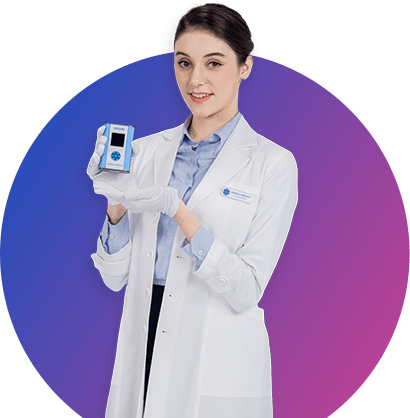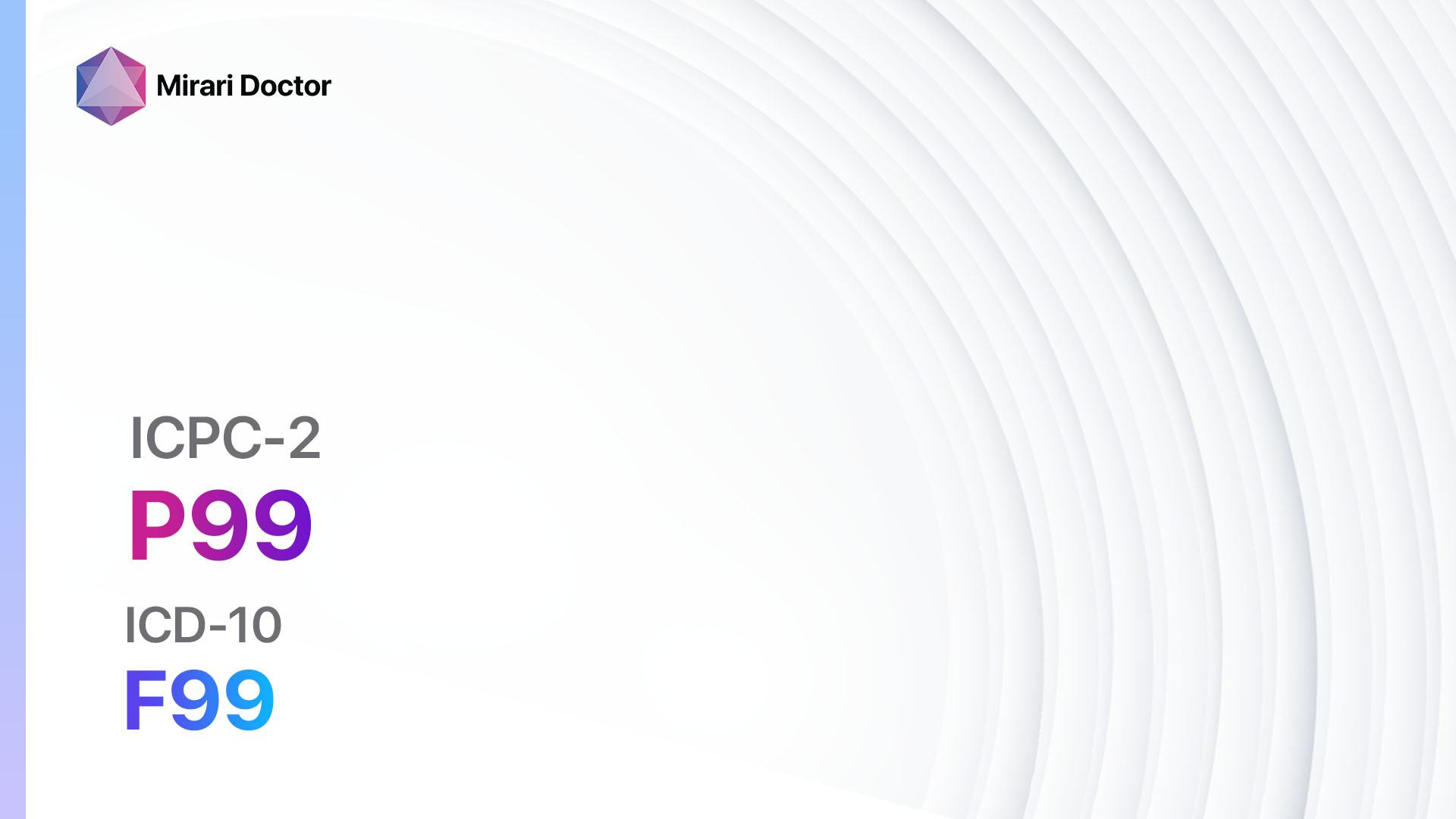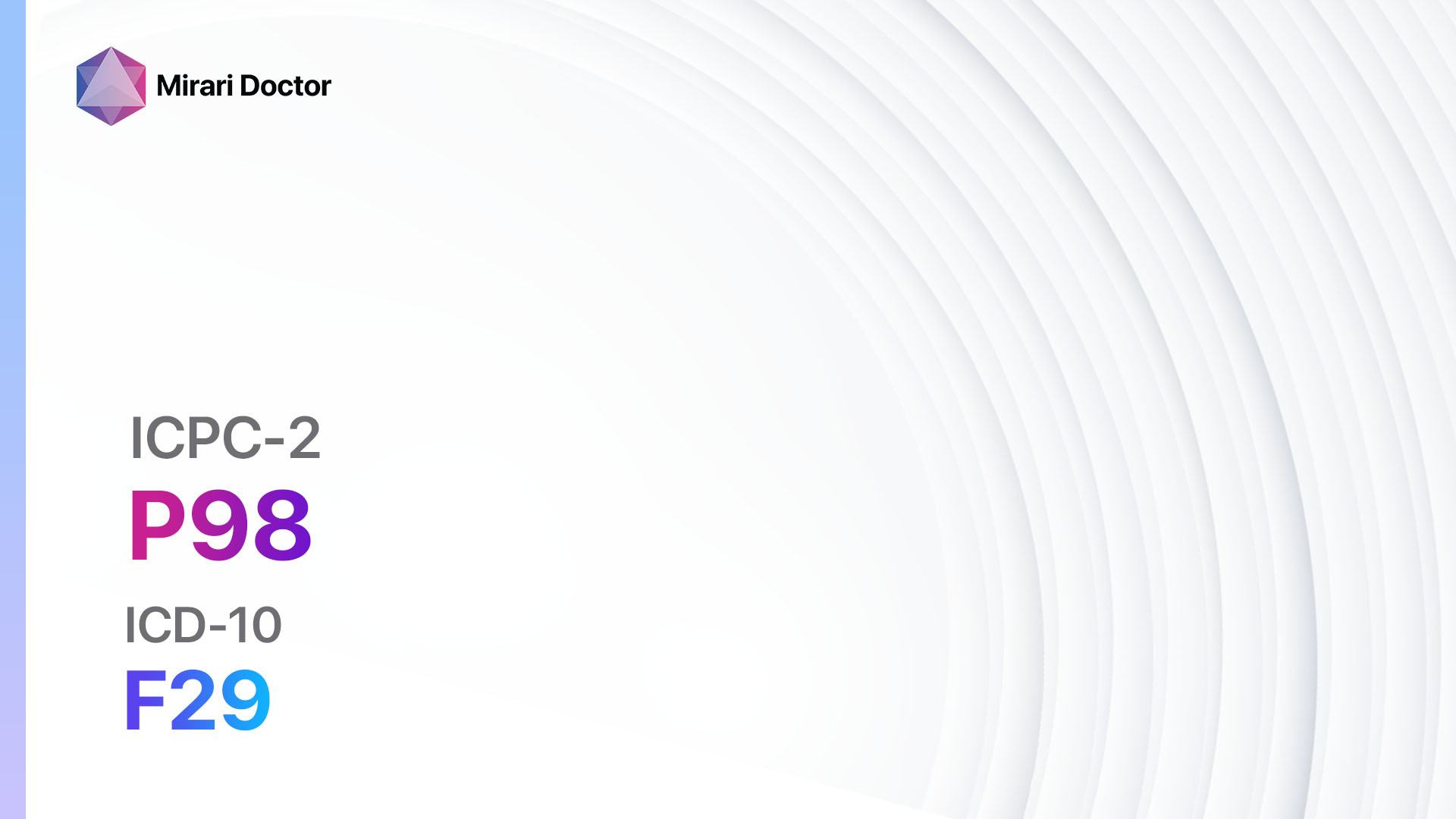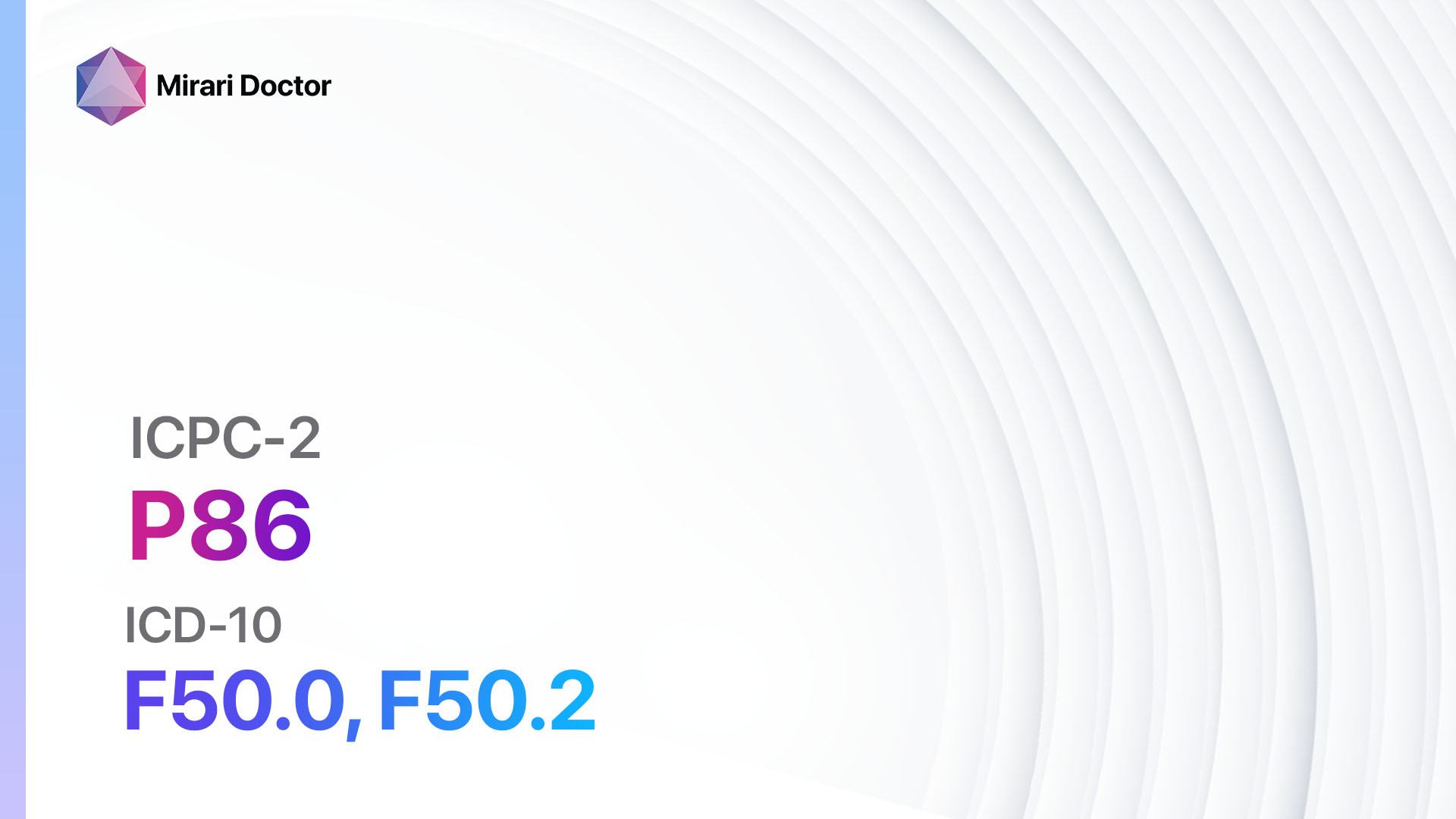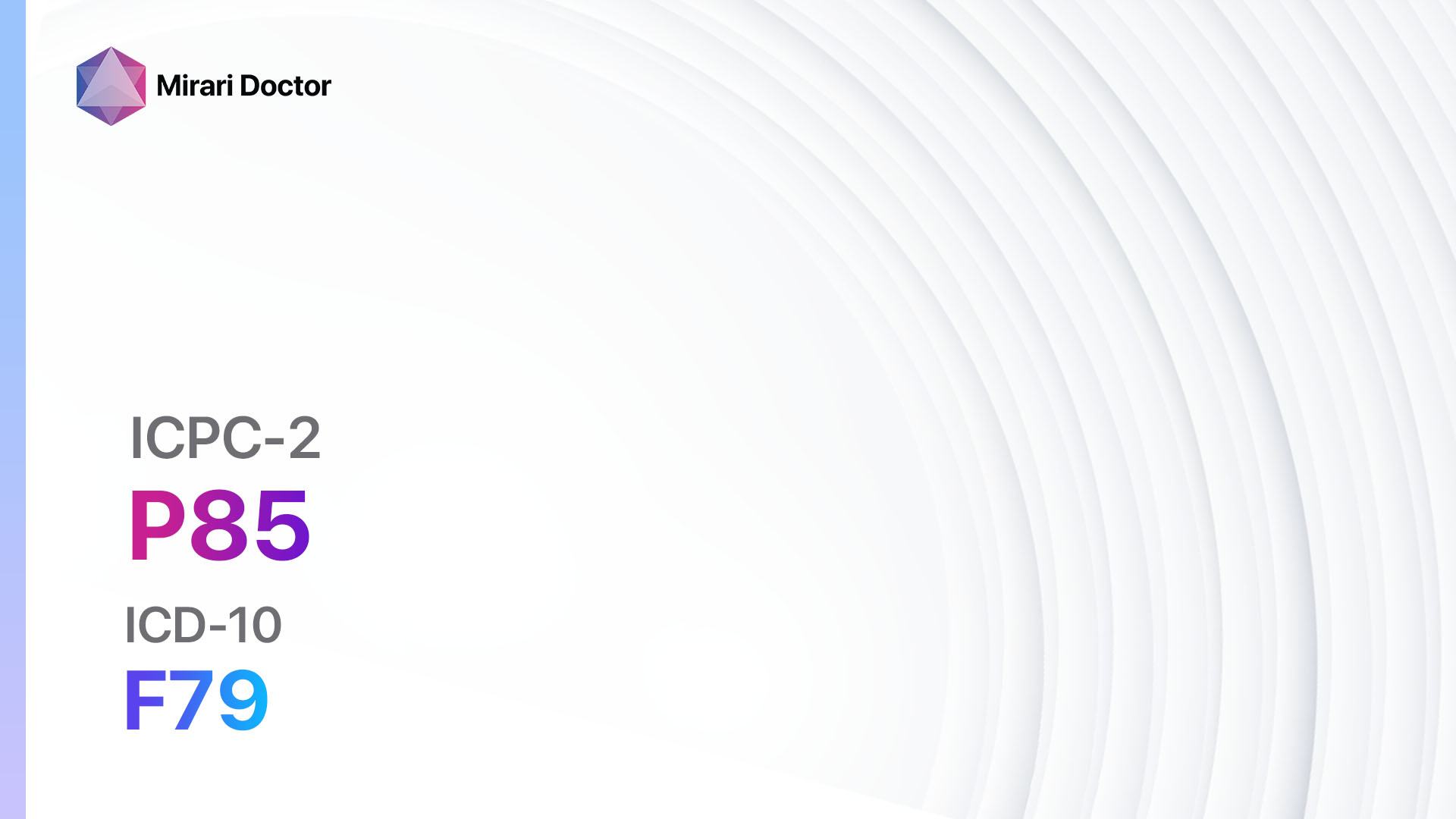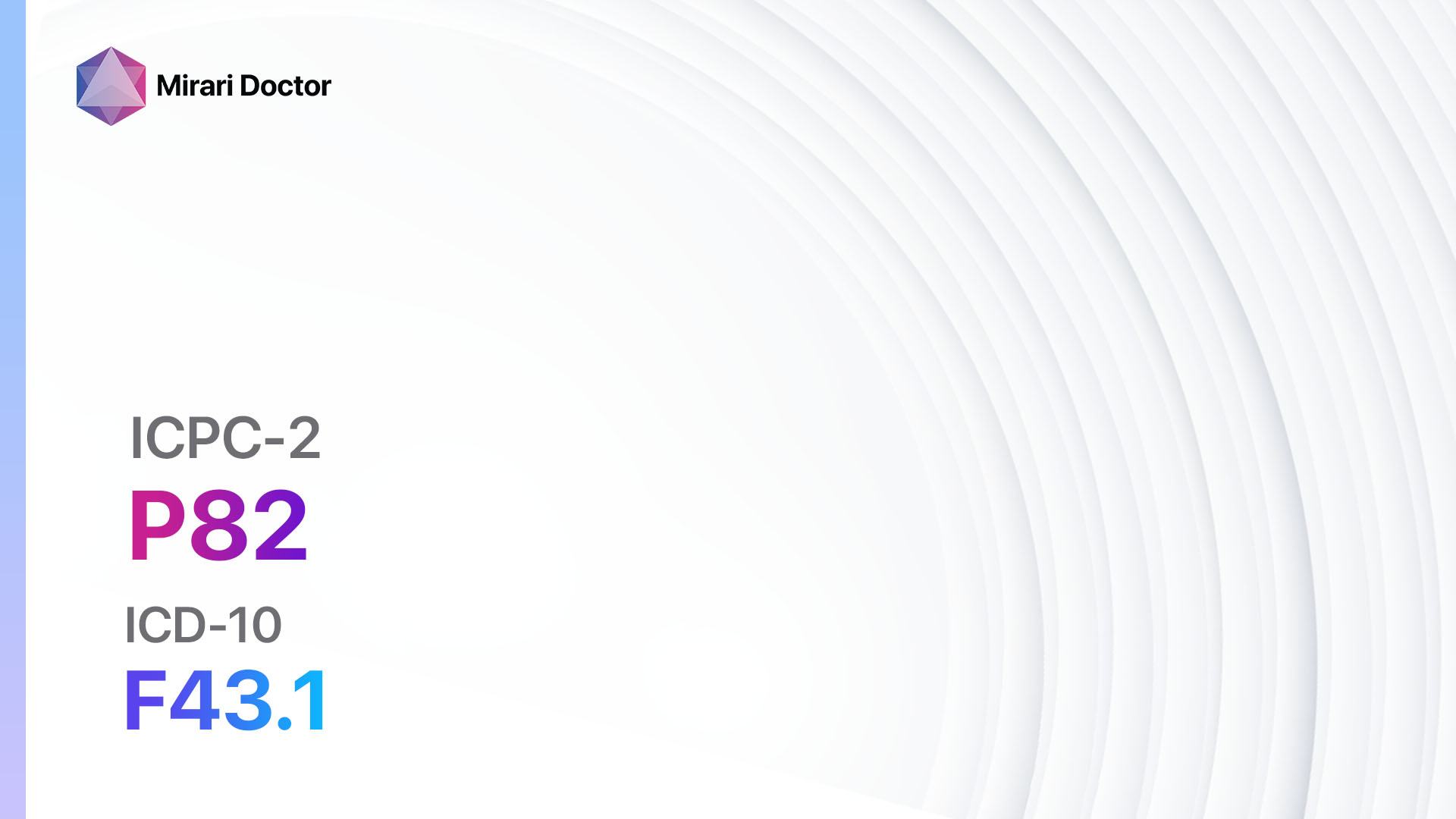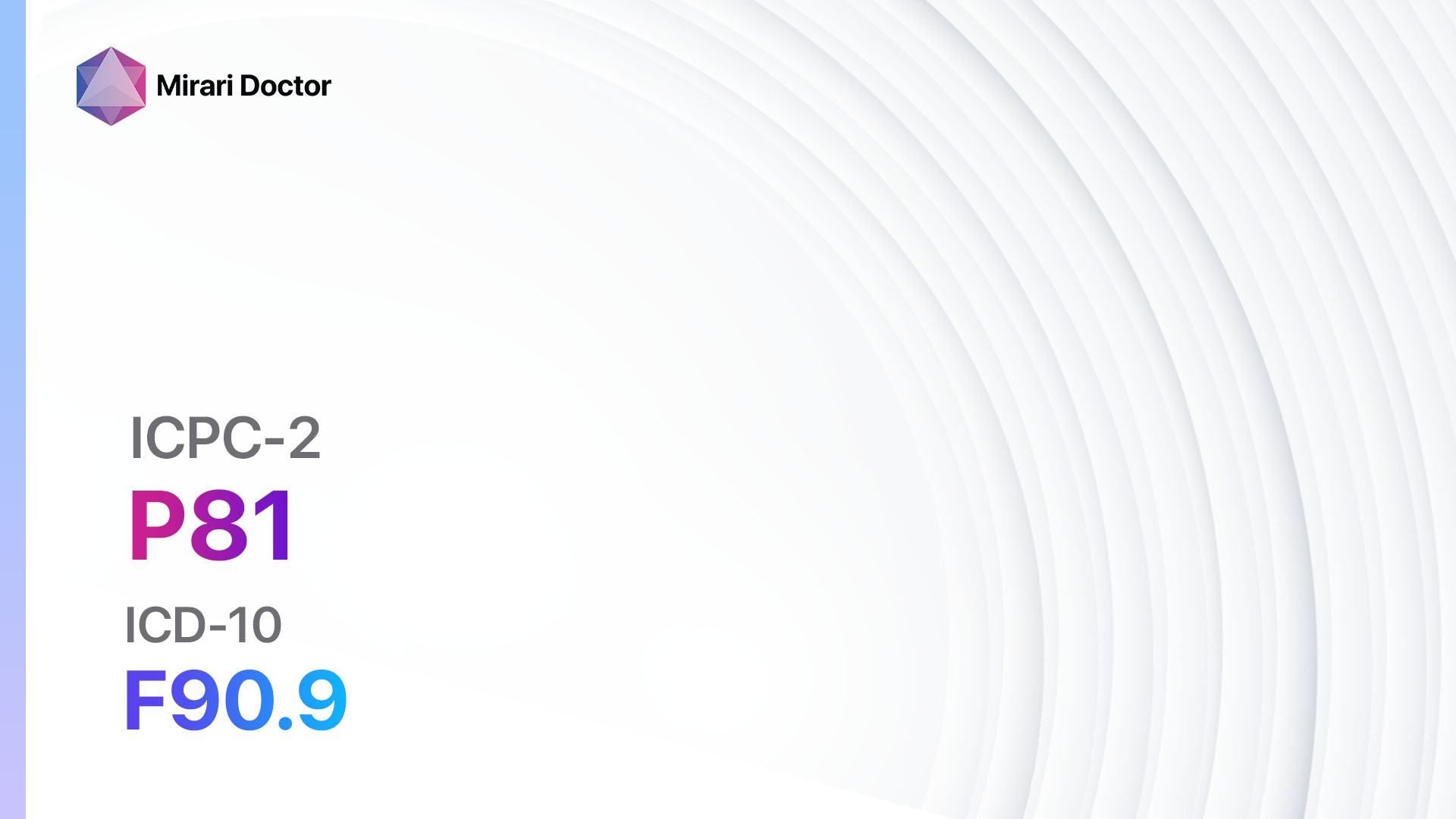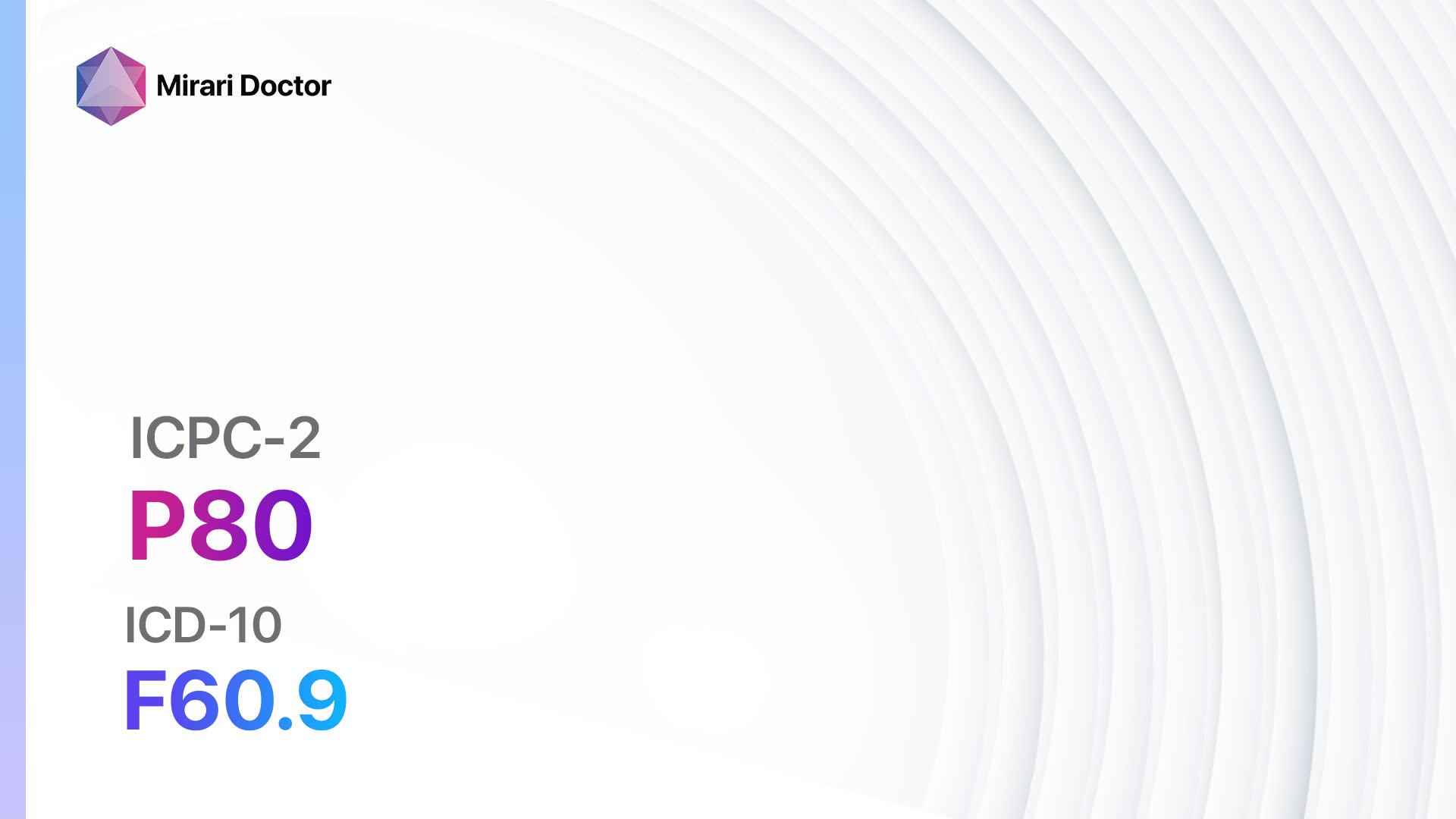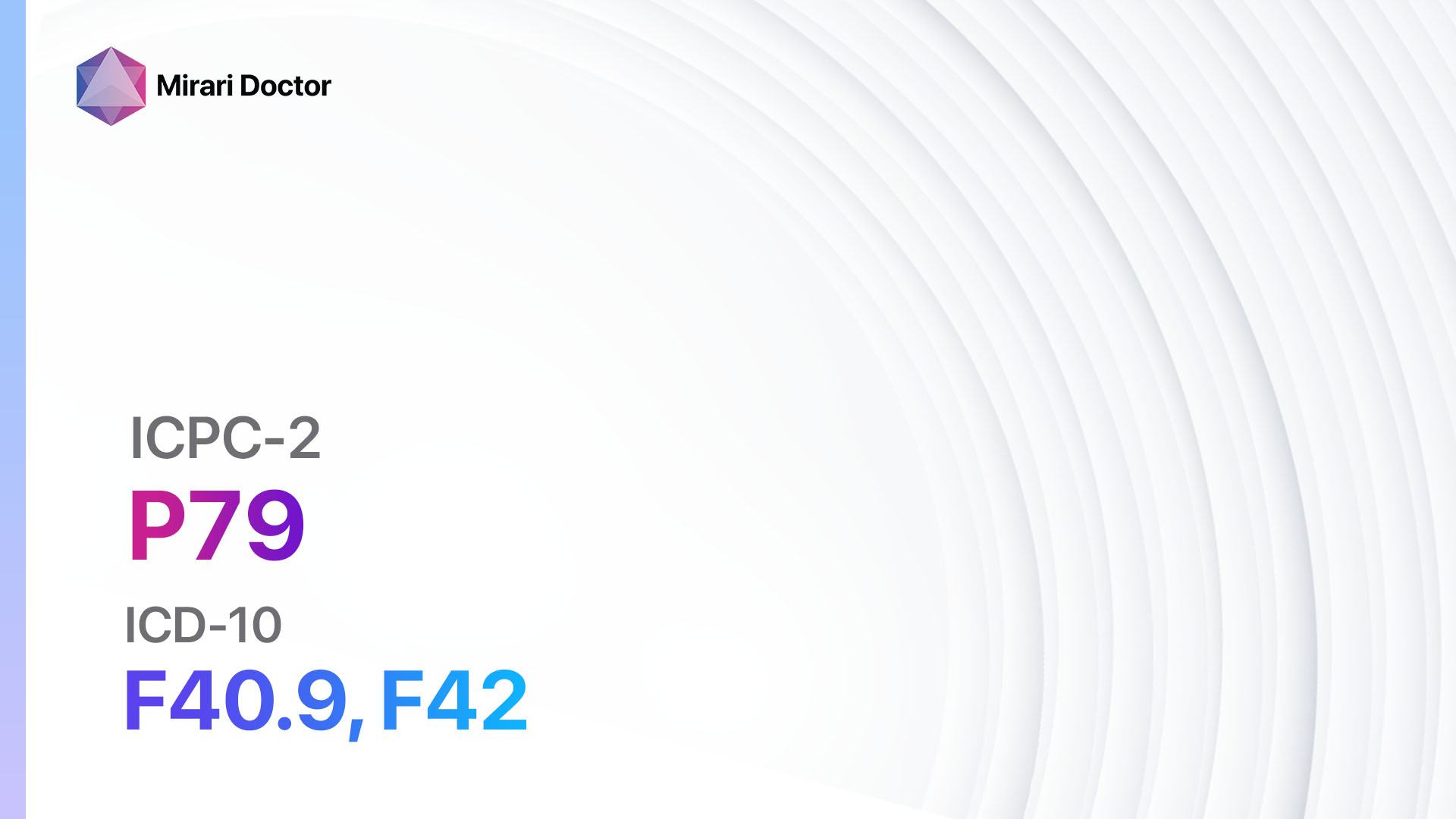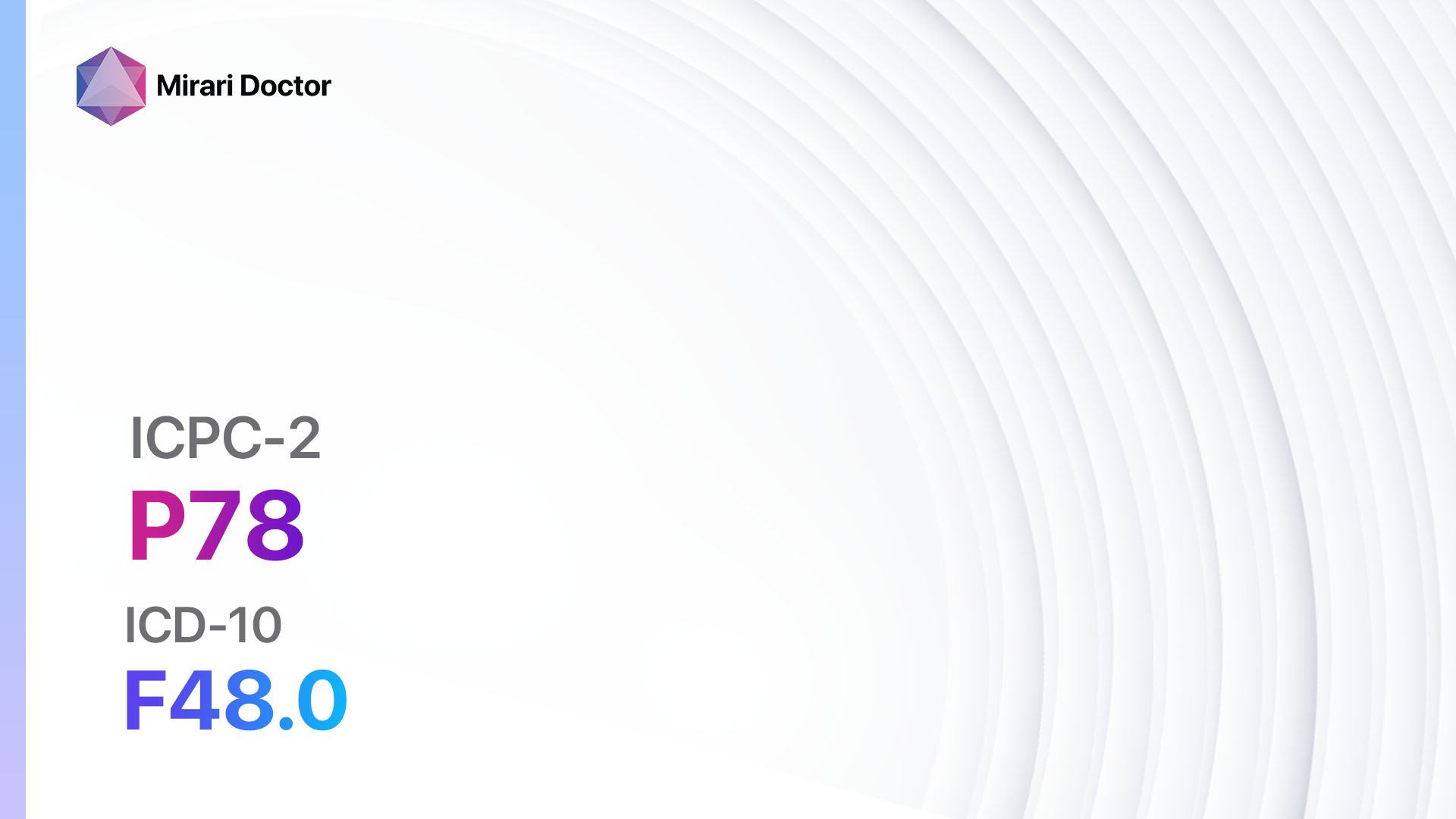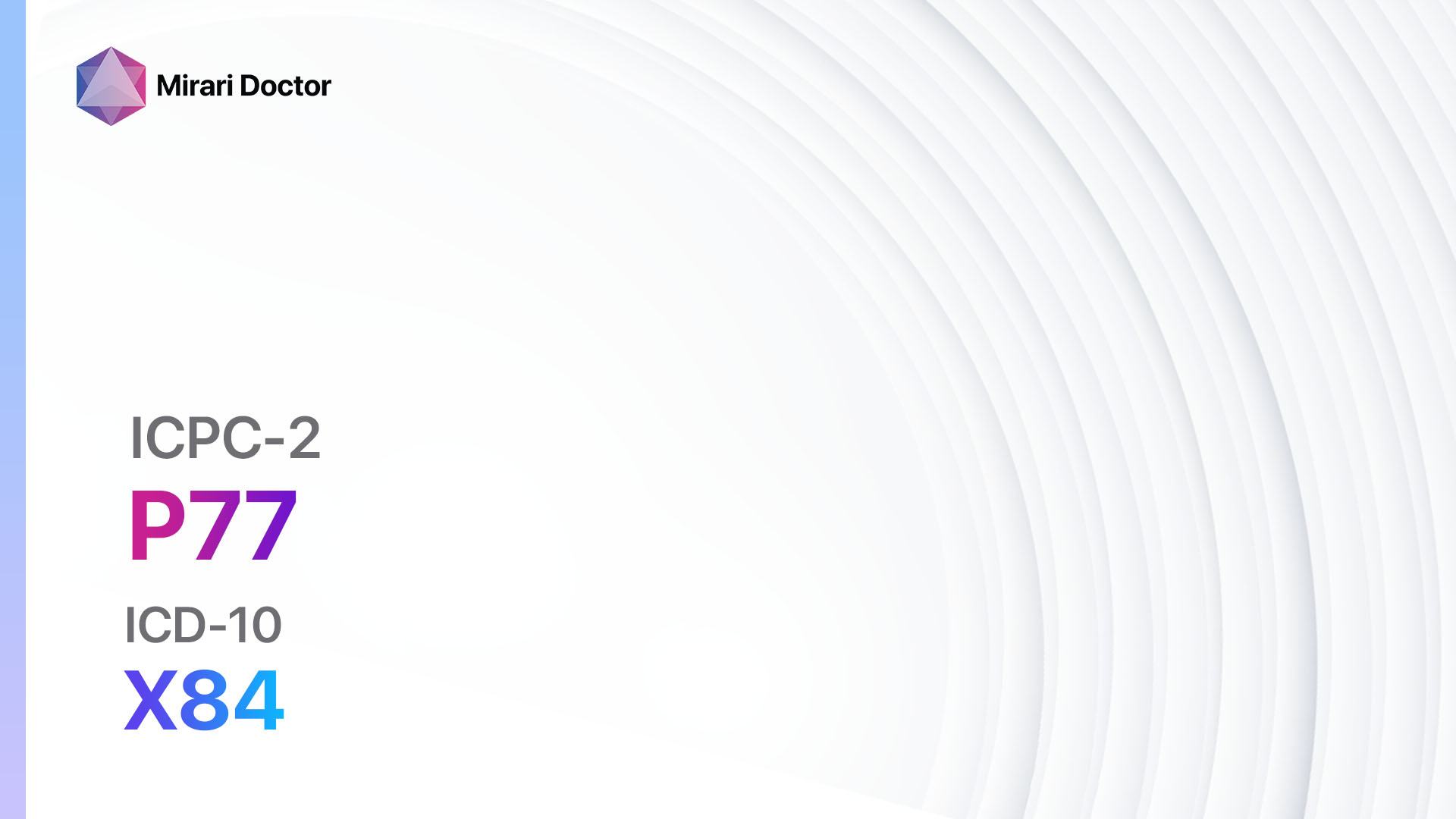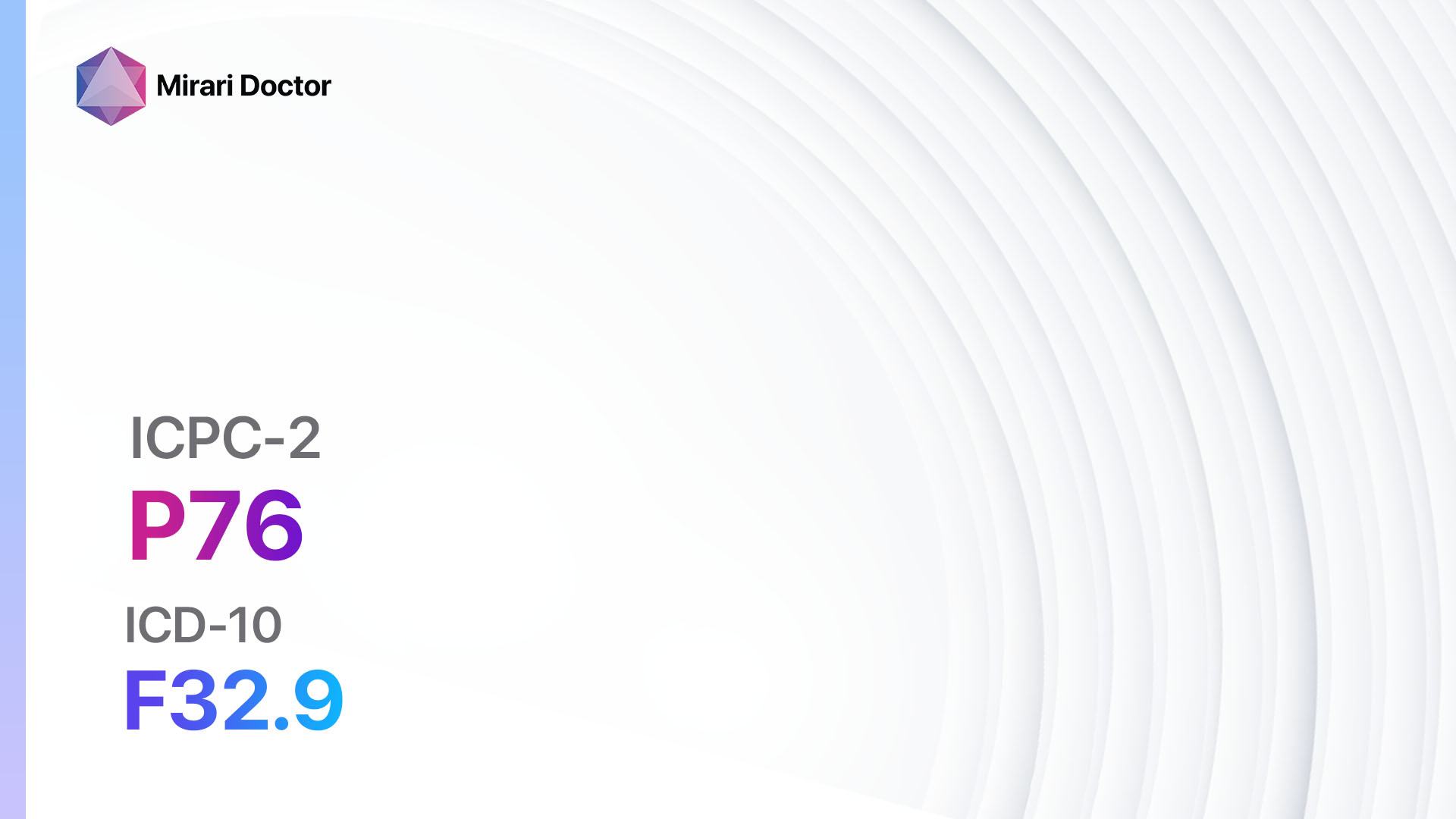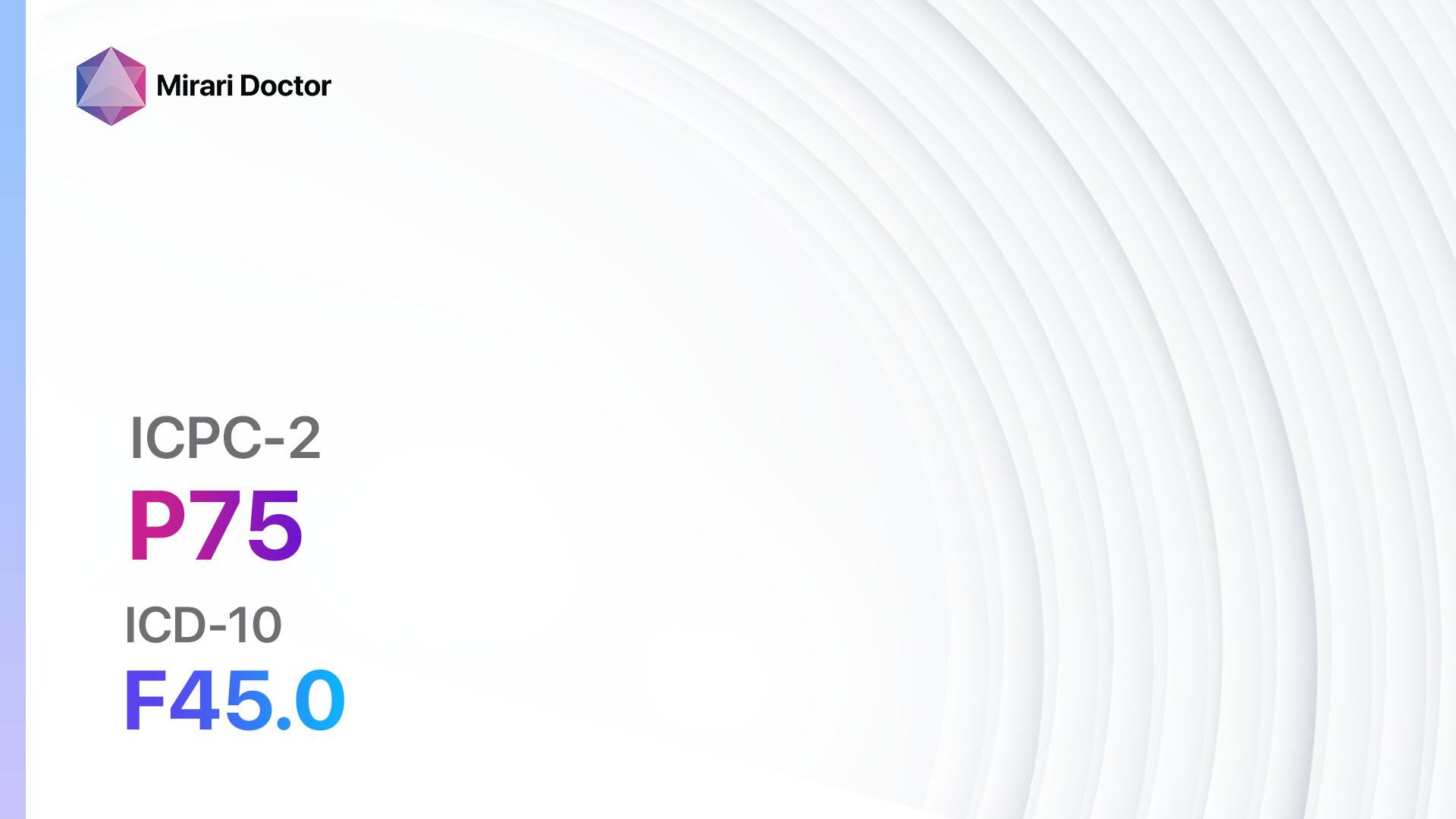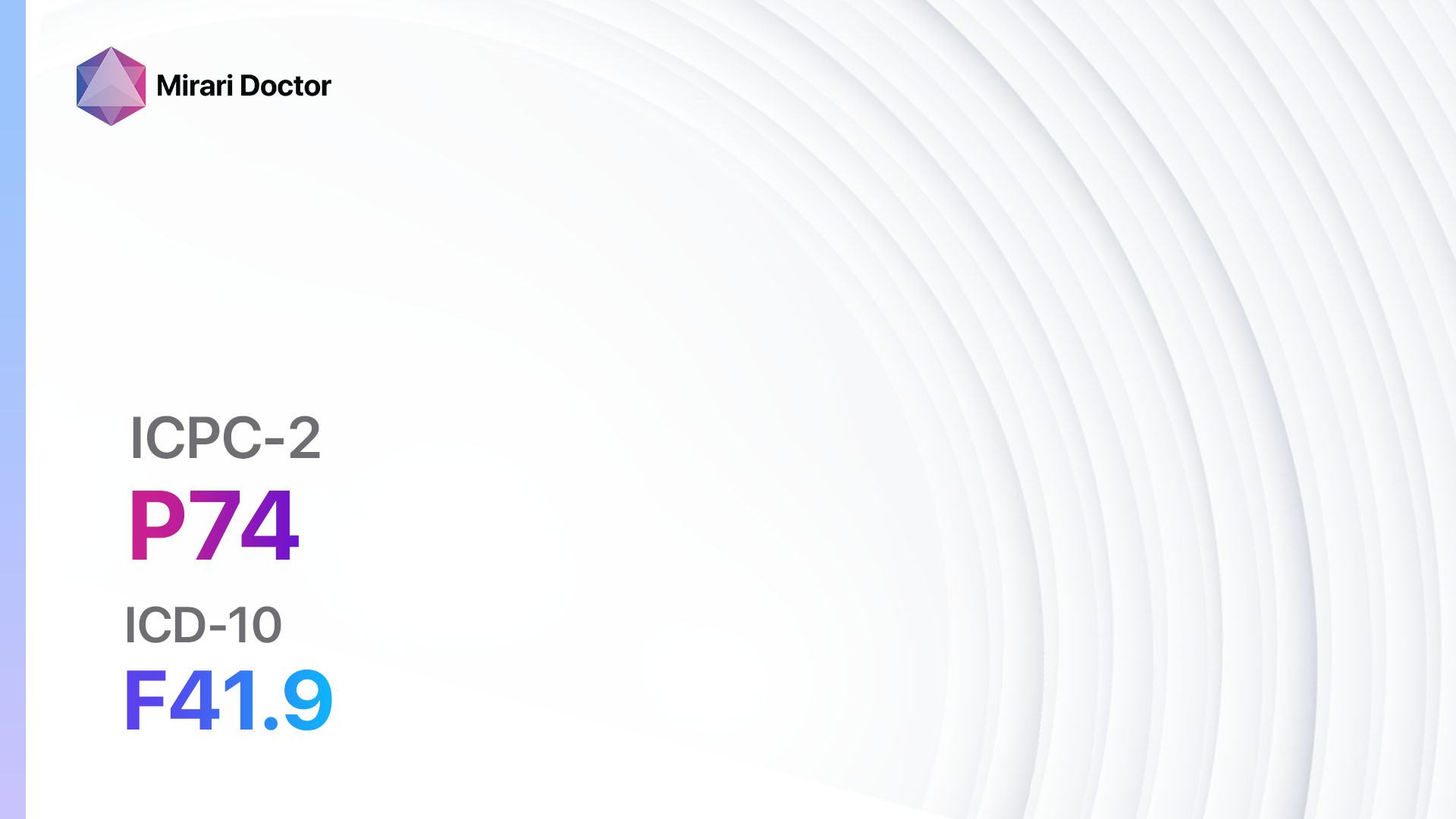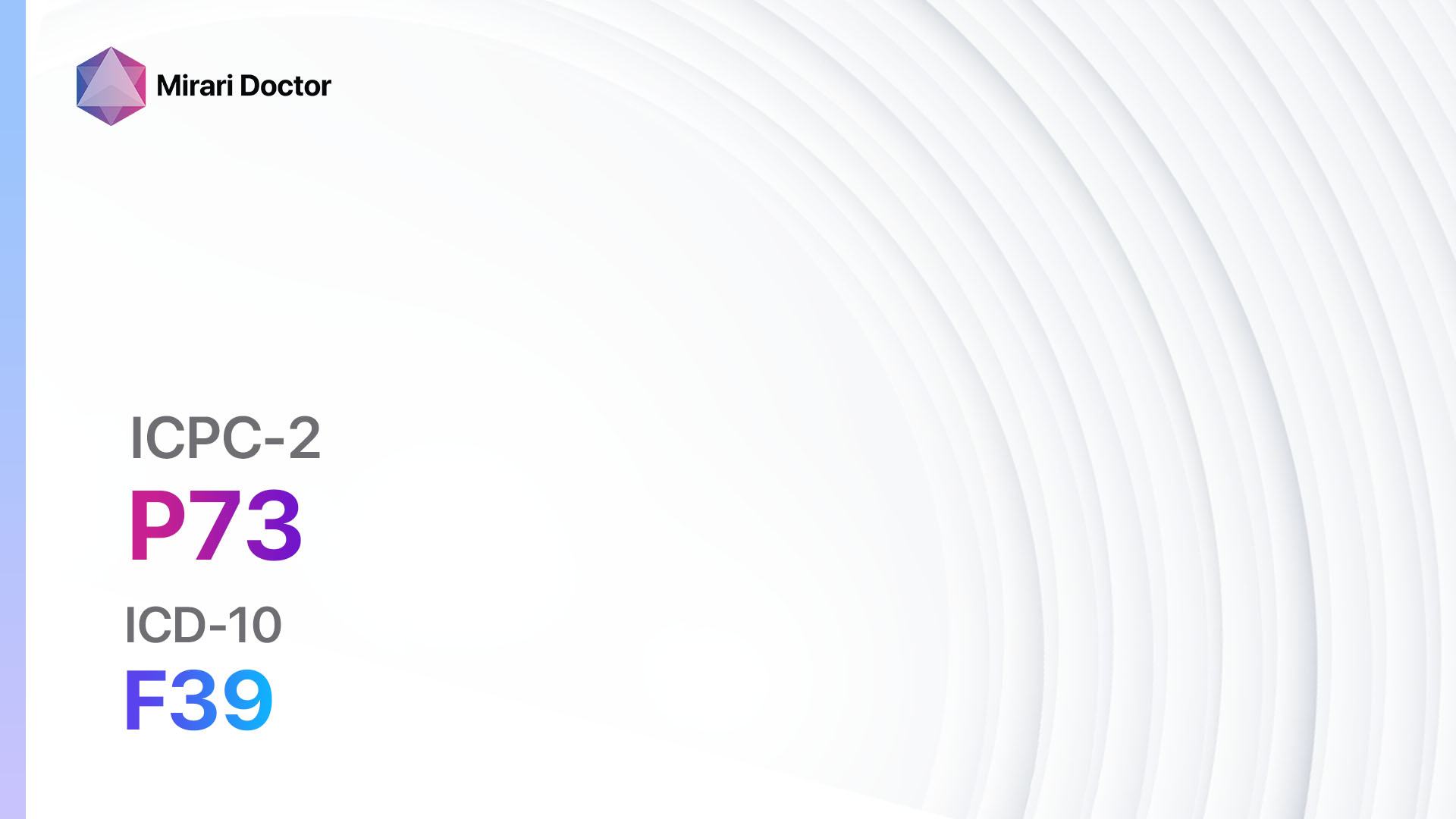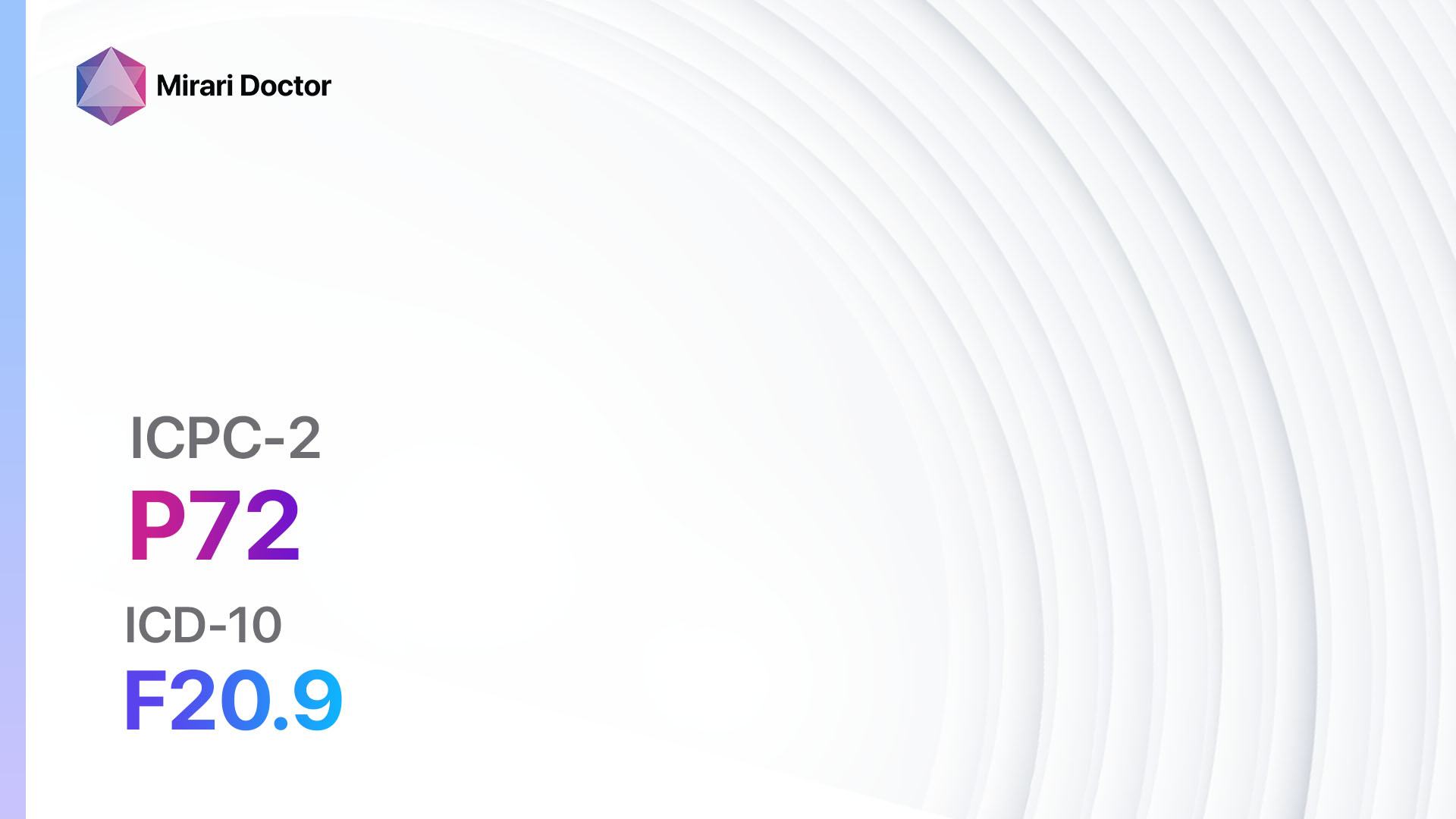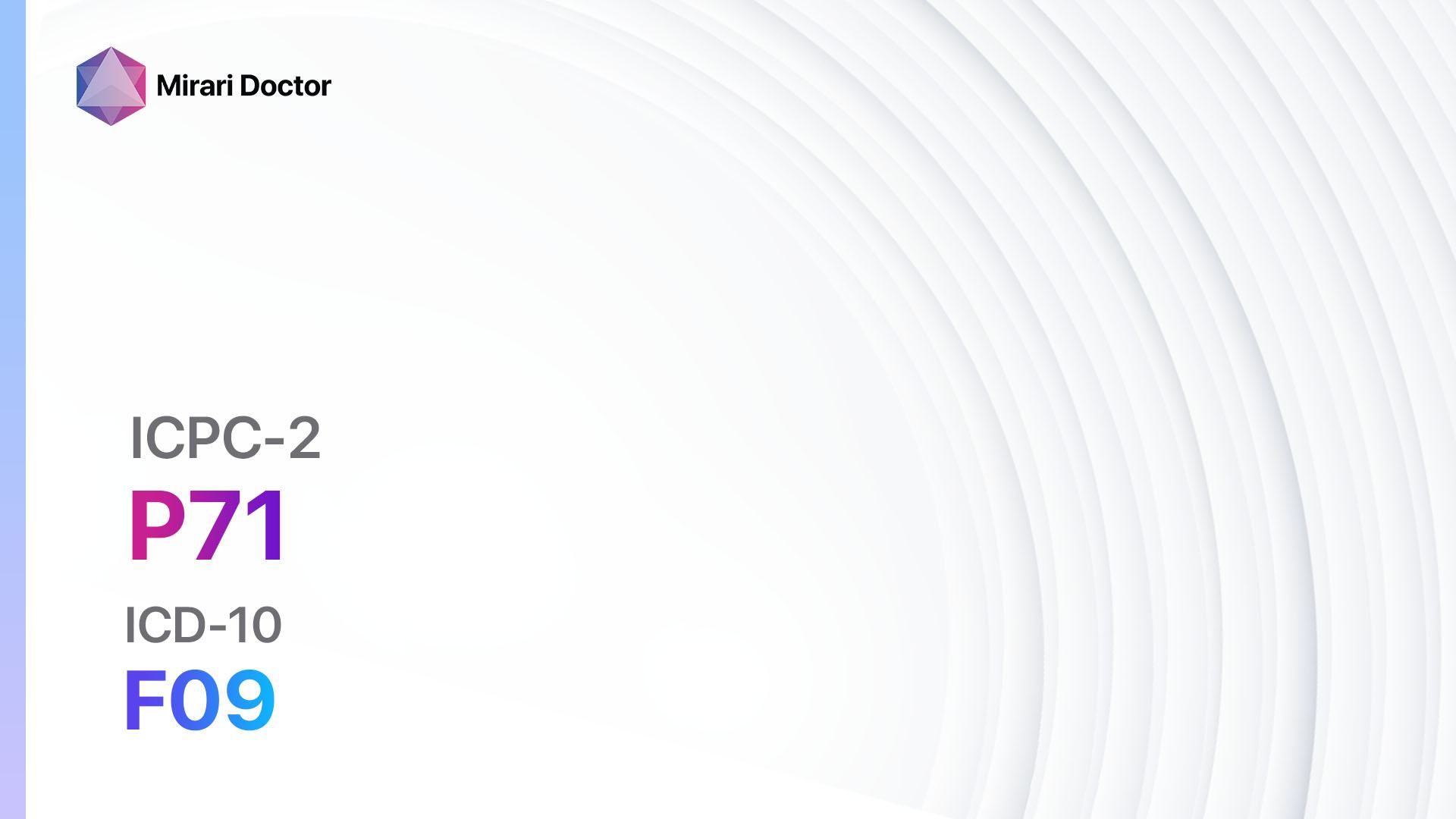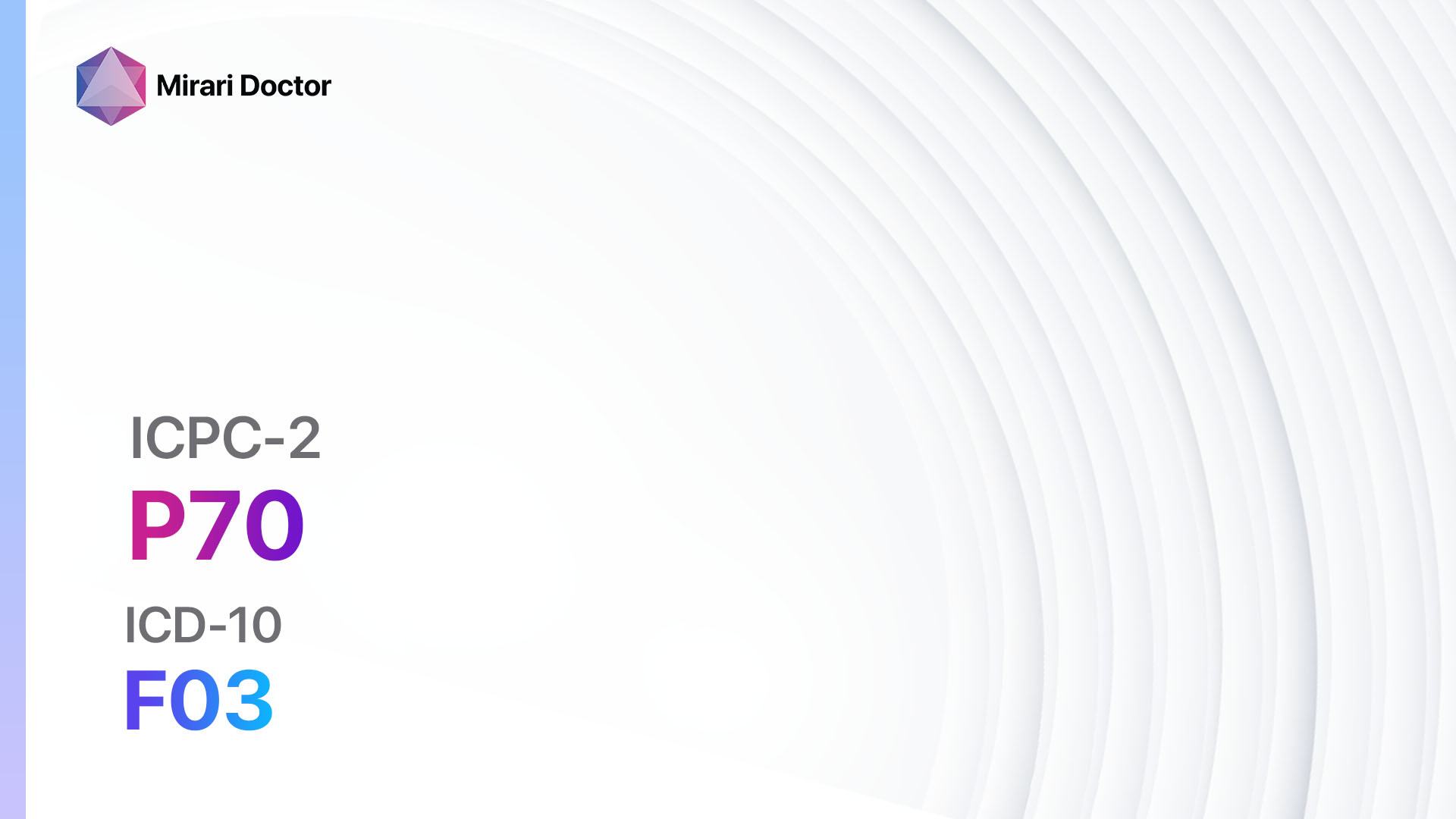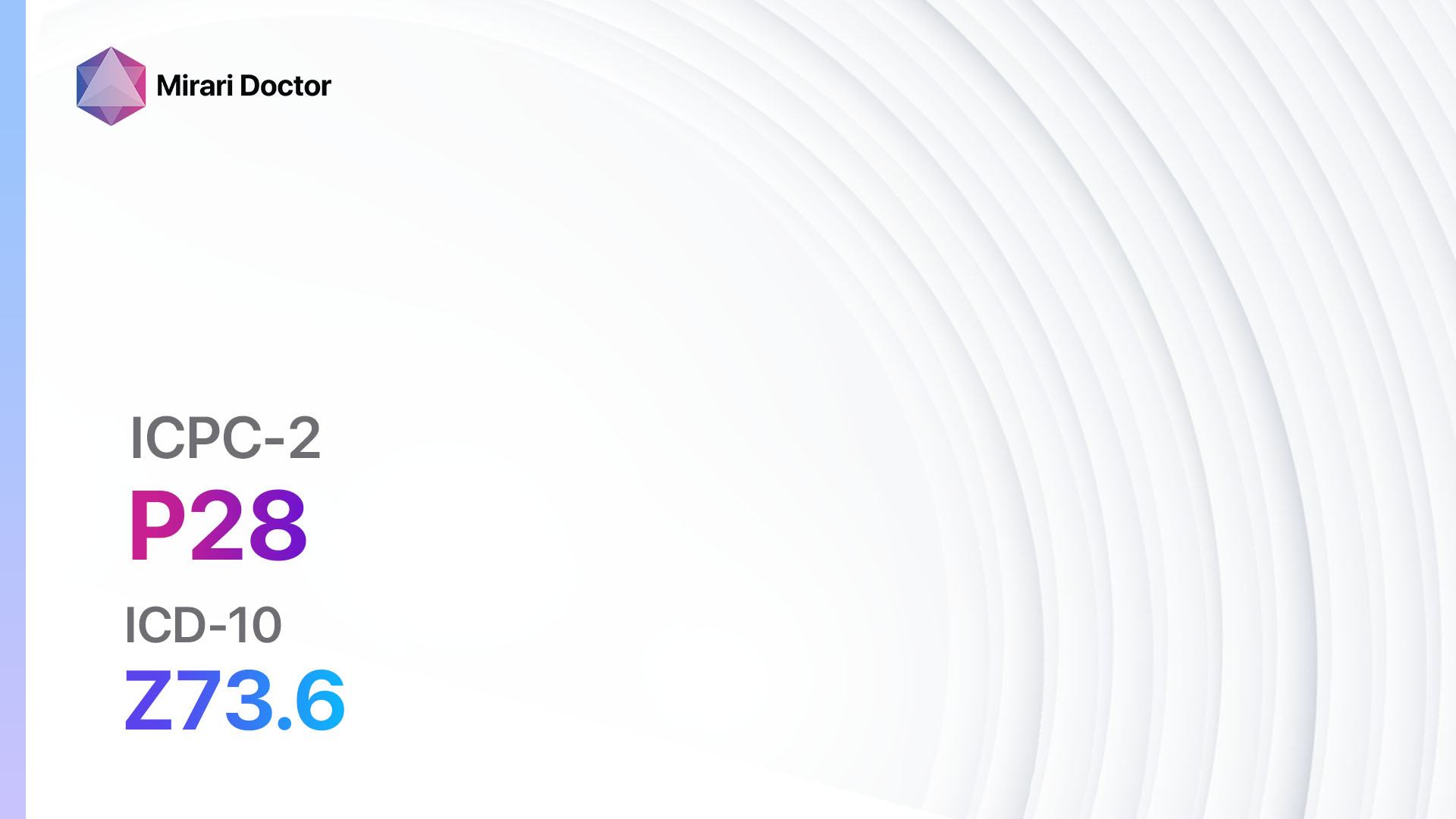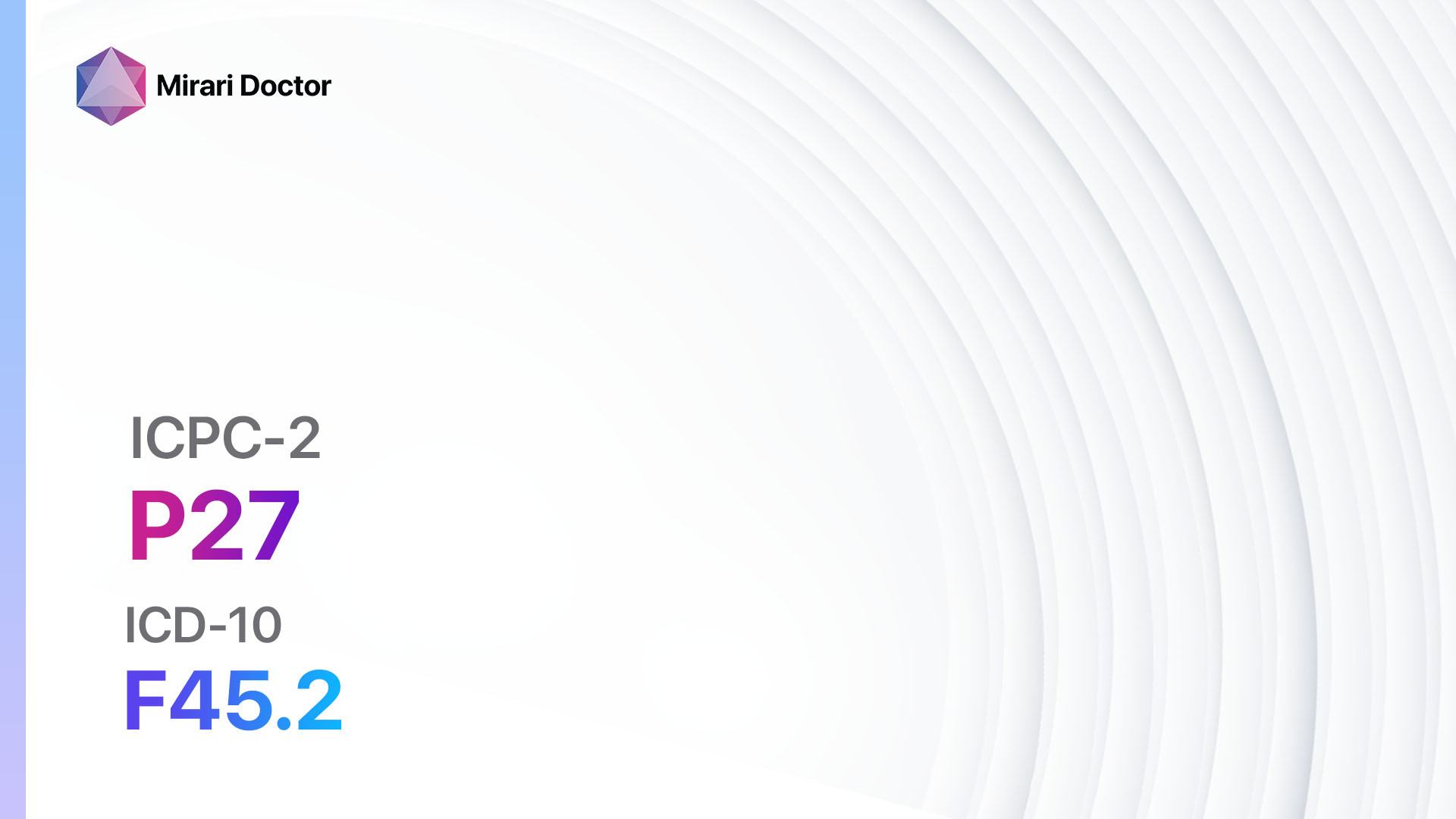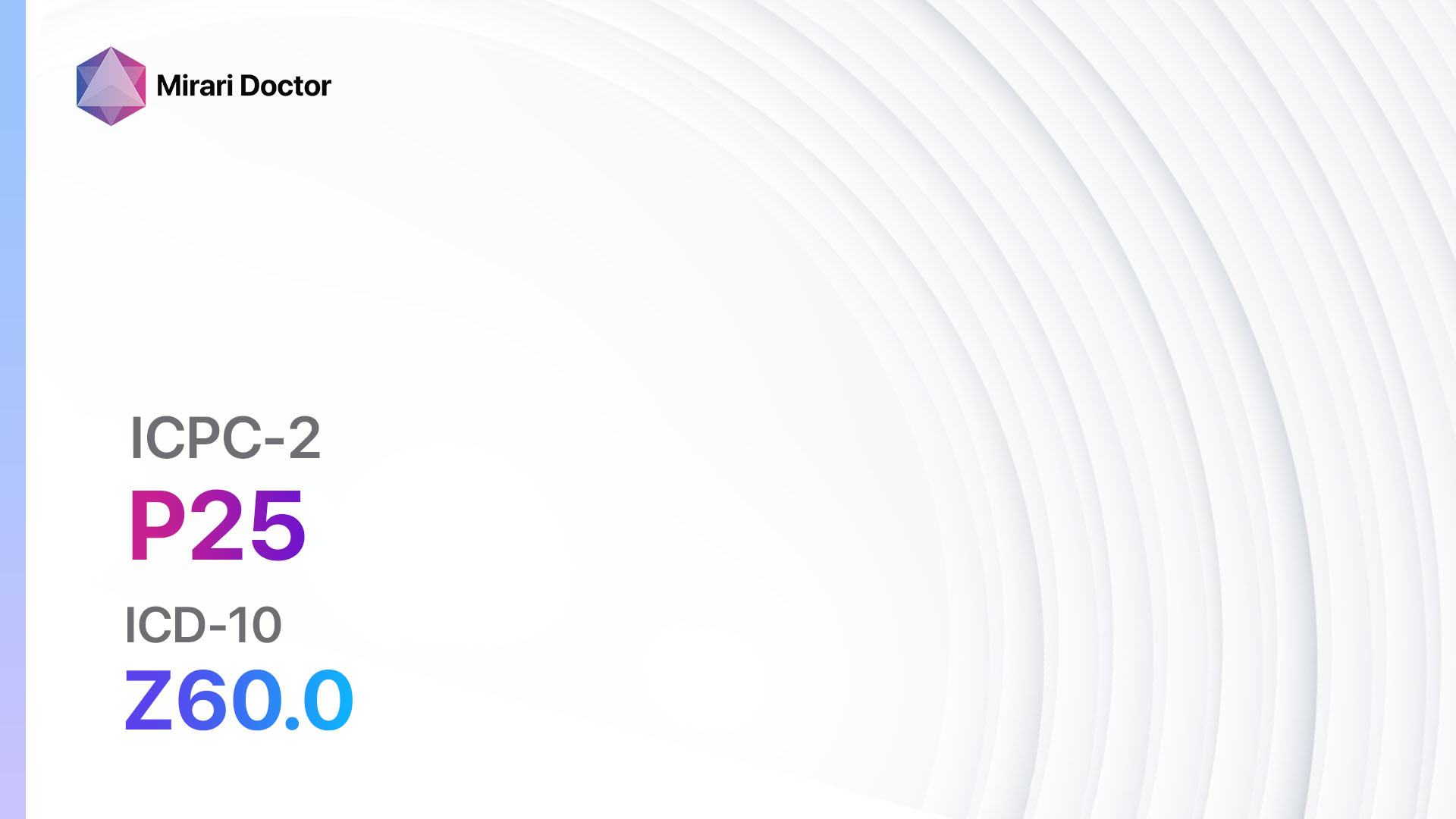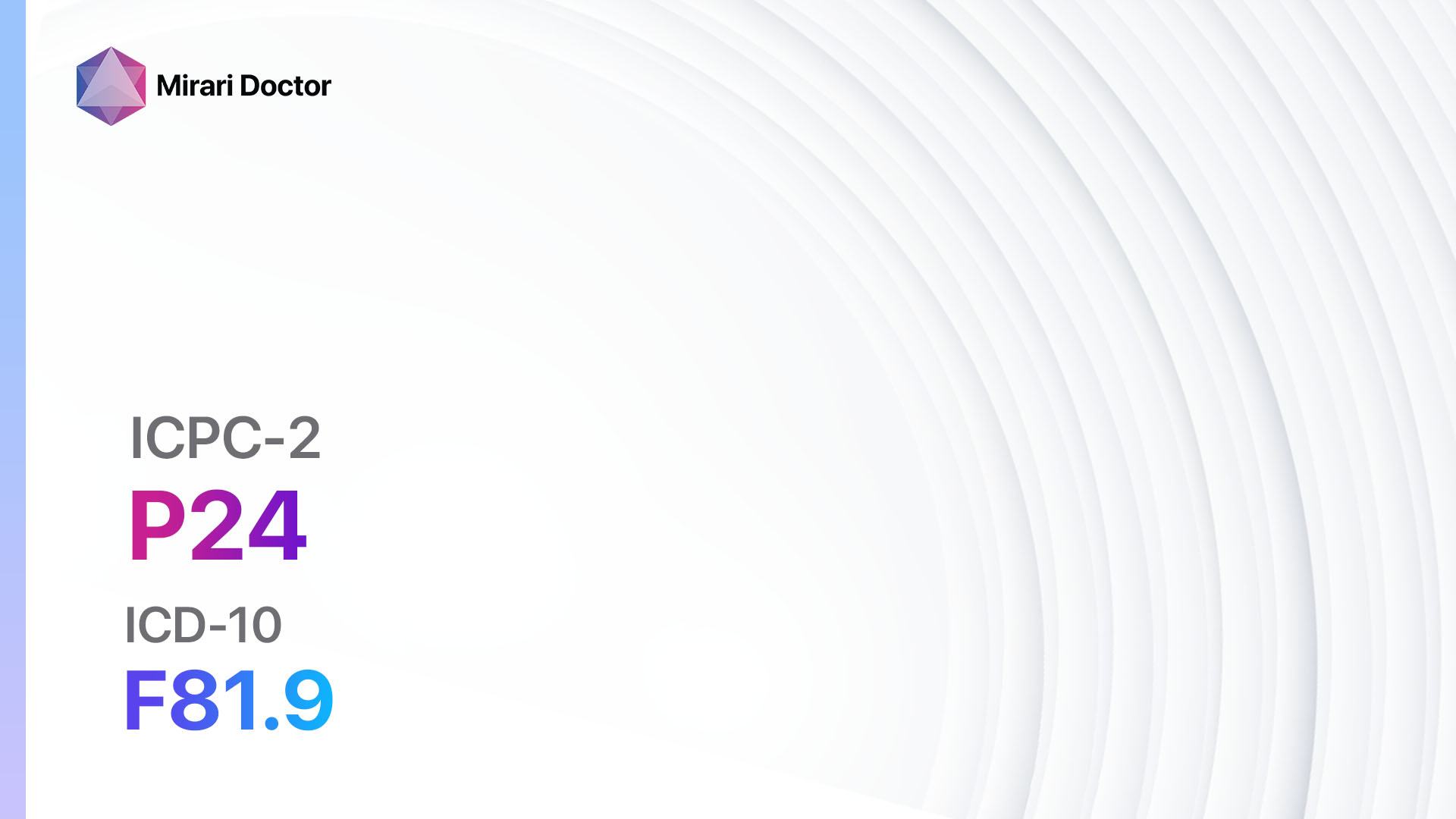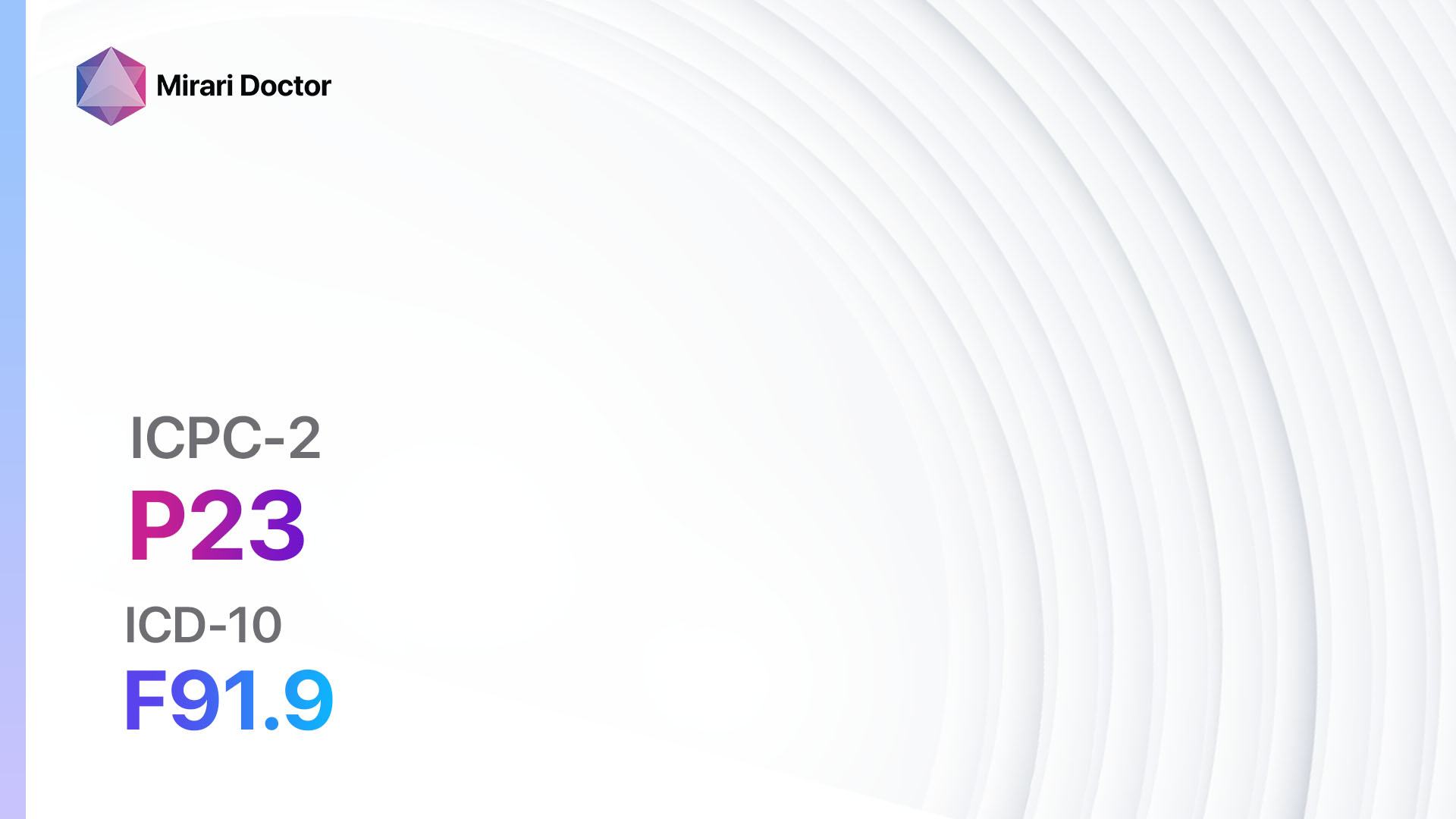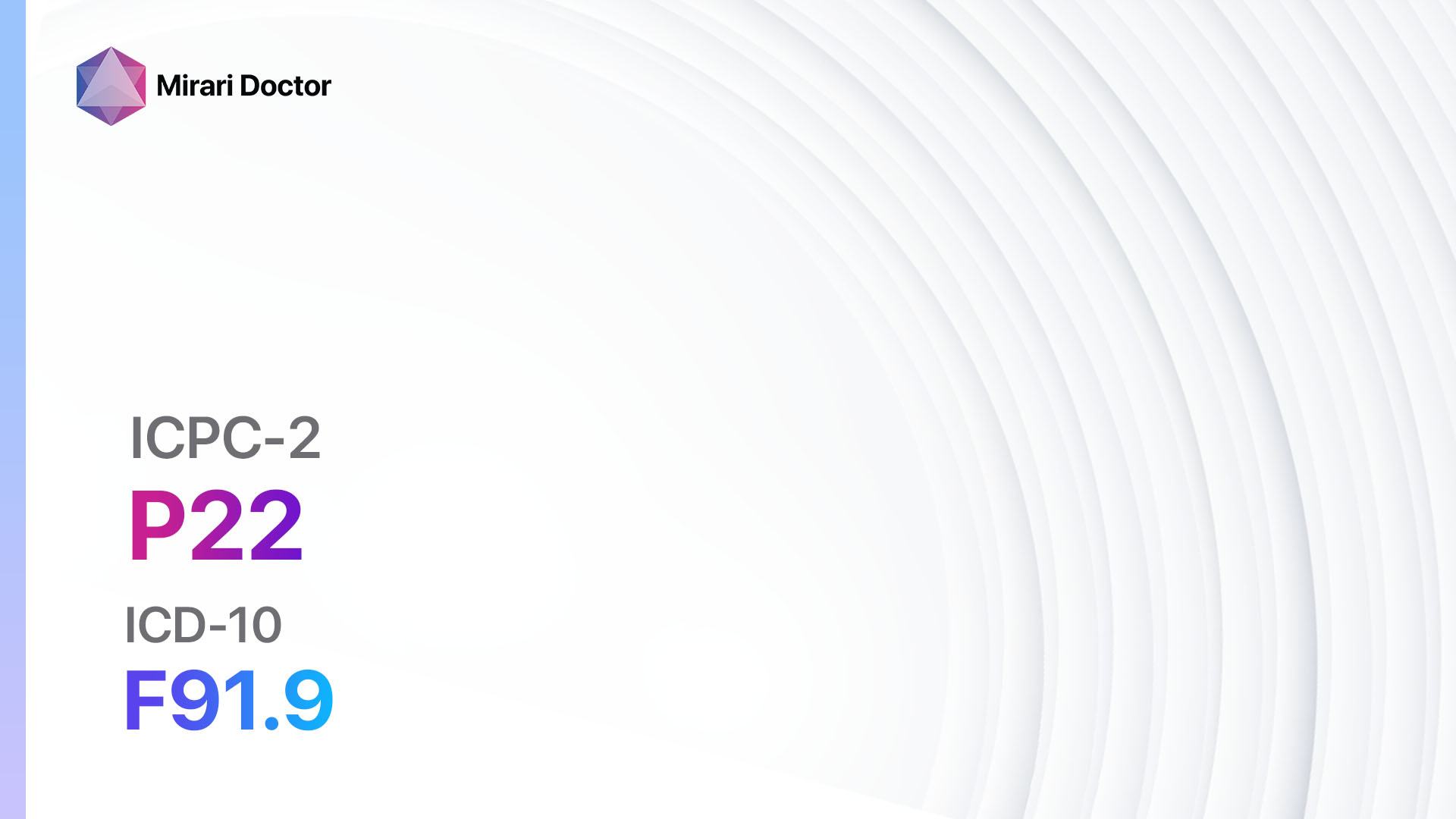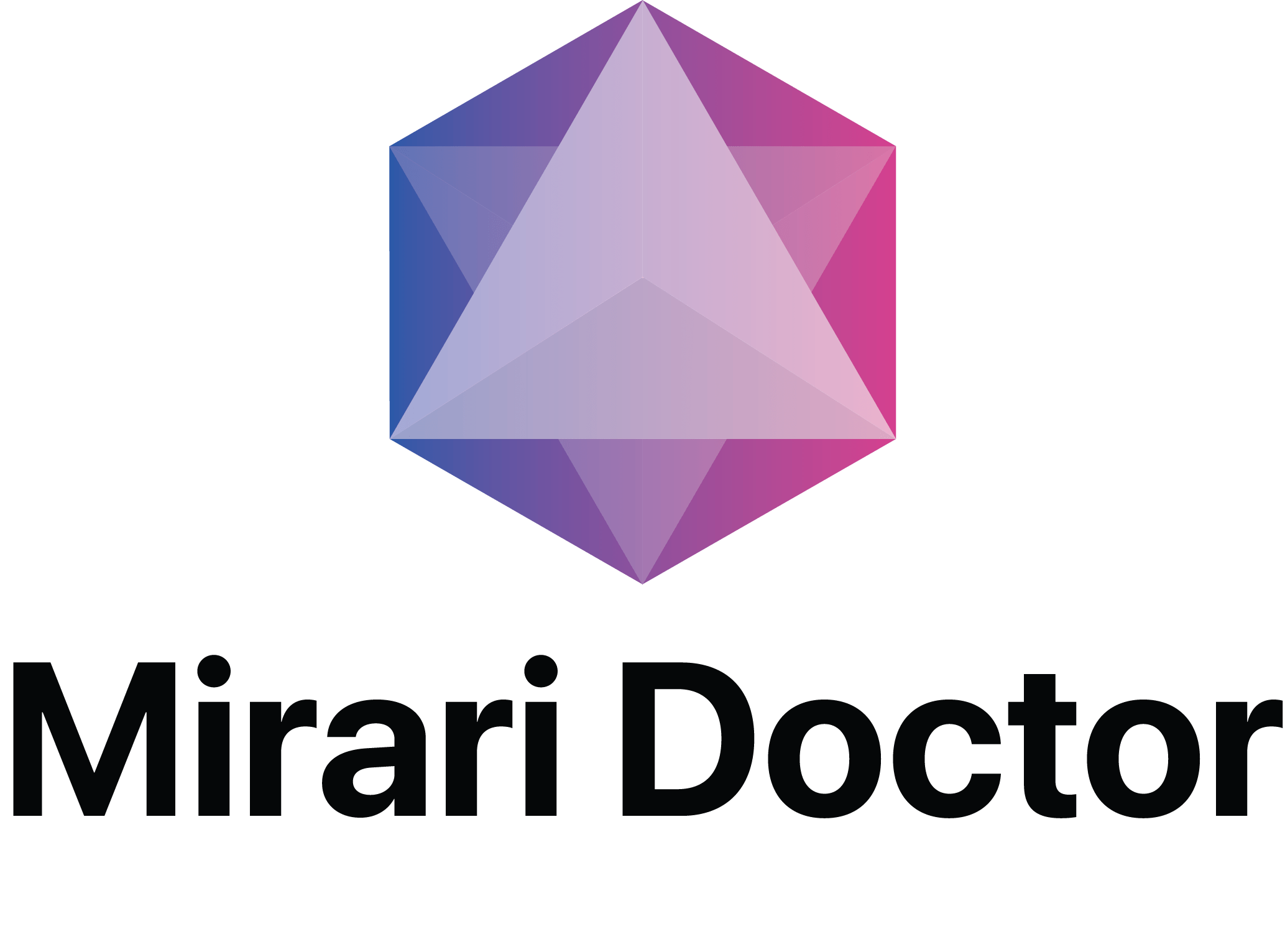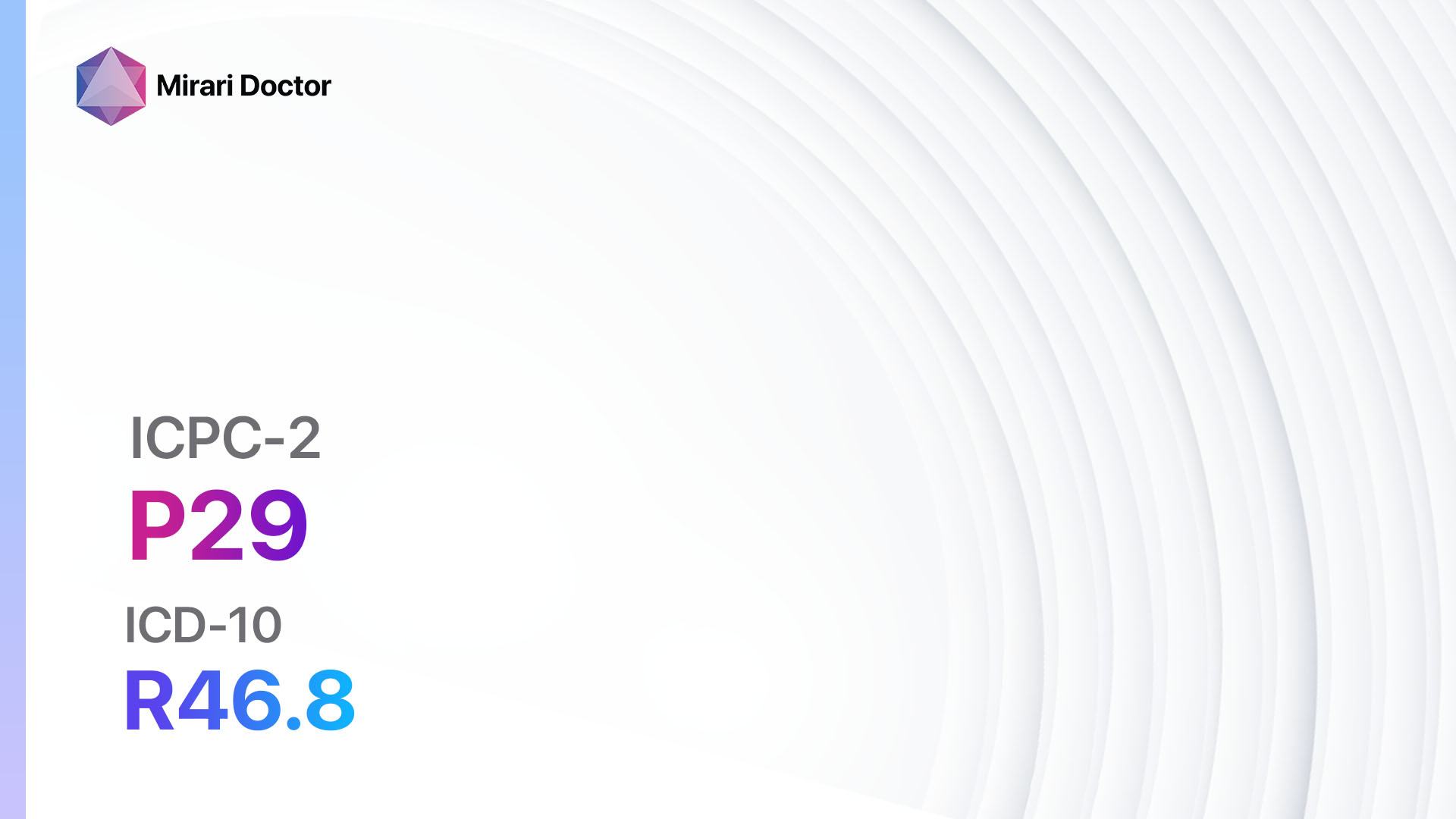
Introduction
Psychological symptoms and complaints encompass a wide range of mental health issues that can significantly impact an individual’s well-being and daily functioning. These symptoms may include anxiety, depression, mood swings, sleep disturbances, cognitive difficulties, and behavioral changes[1][2]. This guide aims to provide healthcare professionals with a comprehensive approach to diagnosing and managing psychological symptoms and complaints.
Codes
- ICPC-2 Code: P29 Psychological symptom/complt other
- ICD-10 Code: R46.8 Other symptoms and signs involving appearance and behaviour
Symptoms
- Anxiety: Excessive worry, restlessness, irritability, difficulty concentrating, sleep disturbances, and physical symptoms such as increased heart rate and sweating[3].
- Depression: Persistent sadness, loss of interest or pleasure in activities, changes in appetite and weight, sleep disturbances, fatigue, feelings of worthlessness or guilt, difficulty concentrating, and suicidal thoughts[4].
- Mood swings: Rapid and extreme shifts in mood, ranging from euphoria to irritability or sadness[5].
- Sleep disturbances: Difficulty falling asleep, staying asleep, or experiencing non-restorative sleep[6].
- Cognitive difficulties: Problems with memory, attention, concentration, and decision-making[7].
- Behavioral changes: Changes in behavior, such as increased agitation, aggression, or withdrawal from social activities[8].
Causes
- Genetic factors: Certain genetic variations may increase the risk of developing psychological symptoms and complaints[9].
- Environmental factors: Traumatic events, chronic stress, childhood adversity, and substance abuse can contribute to the development of these symptoms[10].
- Neurochemical imbalances: Imbalances in neurotransmitters, such as serotonin, dopamine, and norepinephrine, can affect mood and behavior.
- Medical conditions: Certain medical conditions, such as thyroid disorders, hormonal imbalances, and neurological disorders, can manifest as psychological symptoms.
- Medications: Some medications, including certain antidepressants, antipsychotics, and corticosteroids, may cause or exacerbate psychological symptoms.
Diagnostic Steps
Medical History
- Gather information about the patient’s personal and family medical history, including any history of mental health disorders.
- Assess the presence of risk factors, such as a history of trauma, substance abuse, or chronic stress.
- Inquire about the duration, frequency, and severity of the symptoms.
- Evaluate the impact of the symptoms on the patient’s daily functioning and quality of life.
Physical Examination
- Perform a comprehensive physical examination to rule out any underlying medical conditions that may be contributing to the psychological symptoms.
- Assess vital signs, including blood pressure, heart rate, and temperature.
- Examine the neurological system to identify any abnormalities that may be associated with the symptoms.
- Evaluate the patient’s overall appearance, behavior, and motor function.
Laboratory Tests
- Complete blood count (CBC): To assess for any abnormalities that may indicate an underlying medical condition.
- Thyroid function tests: To evaluate thyroid hormone levels, as imbalances can contribute to mood disturbances.
- Basic metabolic panel: To assess electrolyte levels and kidney function, as imbalances can affect mental health.
- Urine drug screen: To identify any substance abuse that may be contributing to the symptoms.
- Vitamin D levels: Low levels of vitamin D have been associated with depression and mood disorders.
Diagnostic Imaging
- Brain imaging (MRI or CT scan): To rule out any structural abnormalities or neurological conditions that may be causing the symptoms.
- Electroencephalogram (EEG): To evaluate brain wave patterns and identify any abnormalities that may be associated with the symptoms.
Other Tests
- Psychological assessments: Administer standardized questionnaires or interviews to assess the severity and nature of the symptoms.
- Sleep study (polysomnography): To evaluate sleep patterns and identify any sleep disorders that may be contributing to the symptoms.
- Substance abuse screening: To identify any substance abuse that may be exacerbating or causing the symptoms.
Follow-up and Patient Education
- Schedule regular follow-up appointments to monitor the patient’s progress and adjust the treatment plan as needed.
- Provide education on the nature of psychological symptoms and complaints, including the importance of adherence to treatment and self-care strategies.
- Encourage the patient to seek support from mental health professionals, support groups, or counseling services.
- Discuss the potential benefits of lifestyle modifications, such as regular exercise, healthy diet, stress management techniques, and adequate sleep hygiene.
Possible Interventions
Traditional Interventions
Medications:
Top 5 drugs for Psychological symptom/complt other:
- Selective serotonin reuptake inhibitors (SSRIs) (e.g., Fluoxetine, Sertraline, Escitalopram):
- Cost: Generic versions can be $3-$50/month.
- Contraindications: Concurrent use of monoamine oxidase inhibitors (MAOIs), hypersensitivity.
- Side effects: Nausea, headache, sexual dysfunction.
- Severe side effects: Serotonin syndrome, suicidal thoughts.
- Drug interactions: MAOIs, certain migraine medications.
- Warning: May increase the risk of suicidal thoughts, especially in young adults.
- Benzodiazepines (e.g., Alprazolam, Lorazepam, Diazepam):
- Cost: Generic versions can be $4-$50/month.
- Contraindications: History of substance abuse, respiratory depression, glaucoma.
- Side effects: Sedation, dizziness, confusion.
- Severe side effects: Respiratory depression, dependence.
- Drug interactions: Alcohol, opioids.
- Warning: Risk of dependence and withdrawal symptoms with long-term use.
- Atypical antipsychotics (e.g., Aripiprazole, Quetiapine, Olanzapine):
- Cost: Generic versions can be $10-$200/month.
- Contraindications: History of hypersensitivity, dementia-related psychosis.
- Side effects: Weight gain, sedation, metabolic changes.
- Severe side effects: Neuroleptic malignant syndrome, tardive dyskinesia.
- Drug interactions: Antidepressants, anticonvulsants.
- Warning: Increased risk of mortality in elderly patients with dementia-related psychosis.
- Mood stabilizers (e.g., Lithium, Valproate, Lamotrigine):
- Cost: Generic versions can be $10-$100/month.
- Contraindications: Severe renal or hepatic impairment, hypersensitivity.
- Side effects: Tremor, weight gain, gastrointestinal disturbances.
- Severe side effects: Renal failure, hepatotoxicity.
- Drug interactions: Antidepressants, antipsychotics.
- Warning: Regular monitoring of renal and hepatic function required.
- Stimulants (e.g., Methylphenidate, Amphetamine):
- Cost: Generic versions can be $10-$100/month.
- Contraindications: History of cardiovascular disease, glaucoma, hyperthyroidism.
- Side effects: Increased heart rate, decreased appetite, insomnia.
- Severe side effects: Cardiovascular events, psychiatric symptoms.
- Drug interactions: MAOIs, antihypertensive medications.
- Warning: Potential for abuse and dependence.
Alternative Drugs:
- Tricyclic antidepressants (e.g., Amitriptyline, Nortriptyline): May be considered for patients who do not respond to SSRIs or have specific indications.
- Monoamine oxidase inhibitors (MAOIs) (e.g., Phenelzine, Tranylcypromine): Reserved for treatment-resistant cases due to dietary restrictions and potential drug interactions.
- Anticonvulsants (e.g., Gabapentin, Pregabalin): May be used for mood stabilization or as adjunctive therapy for anxiety disorders.
- Beta-blockers (e.g., Propranolol, Atenolol): Can be helpful for managing physical symptoms of anxiety, such as tremors and palpitations.
- Antipsychotics (e.g., Risperidone, Ziprasidone): May be used for specific indications, such as psychotic symptoms or severe agitation.
Psychotherapy:
- Cognitive-behavioral therapy (CBT): Focuses on identifying and modifying negative thought patterns and behaviors that contribute to psychological symptoms.
- Interpersonal therapy (IPT): Addresses interpersonal issues and relationships that may be contributing to the symptoms.
- Psychodynamic therapy: Explores unconscious conflicts and unresolved issues that may be influencing the symptoms.
- Supportive therapy: Provides emotional support and guidance to help individuals cope with their symptoms and improve their overall well-being.
- Group therapy: Offers a supportive and therapeutic environment for individuals to share their experiences and learn from others.
Surgical Procedures
- Electroconvulsive therapy (ECT): Involves the administration of electric currents to the brain to induce a controlled seizure. Used for severe depression or treatment-resistant cases.
- Cost: $2,500-$5,000 per session.
Alternative Interventions
- Acupuncture: May help reduce anxiety and improve overall well-being.
- Cost: $60-$120 per session.
- Mindfulness meditation: Can help reduce stress, improve mood, and increase self-awareness.
- Cost: Varies; can be self-taught or involve attending classes or workshops.
- Yoga: Combines physical postures, breathing exercises, and meditation to promote relaxation and reduce anxiety.
- Cost: Varies; can be self-practice or involve attending classes or workshops.
- Herbal supplements: Some herbal supplements, such as St. John’s Wort and Valerian root, may have potential benefits for managing mild to moderate depression and anxiety.
- Cost: Varies depending on the specific supplement.
- Massage therapy: Can help reduce muscle tension, promote relaxation, and improve overall well-being.
- Cost: $50-$100 per session.
Lifestyle Interventions
- Regular exercise: Engaging in physical activity can help reduce symptoms of depression and anxiety, improve sleep, and boost overall mood.
- Cost: Varies; can be as simple as walking or jogging outdoors or joining a gym or fitness classes.
- Healthy diet: Consuming a balanced diet rich in fruits, vegetables, whole grains, and lean proteins can support overall mental health and well-being.
- Cost: Varies depending on individual food choices and dietary preferences.
- Stress management techniques: Practicing stress reduction techniques, such as deep breathing exercises, progressive muscle relaxation, and guided imagery, can help alleviate psychological symptoms.
- Cost: Varies; can be self-taught or involve attending classes or workshops.
- Adequate sleep hygiene: Establishing a regular sleep schedule, creating a comfortable sleep environment, and practicing relaxation techniques before bedtime can improve sleep quality and reduce sleep disturbances.
- Cost: Varies; can involve purchasing a comfortable mattress or bedding, using white noise machines, or trying relaxation apps.
It is important to note that the cost ranges provided are approximate and may vary depending on the location and availability of the interventions.
Mirari Cold Plasma Alternative Intervention
Understanding Mirari Cold Plasma
- Safe and Non-Invasive Treatment: Mirari Cold Plasma is a safe and non-invasive treatment option for various skin conditions. It does not require incisions, minimizing the risk of scarring, bleeding, or tissue damage.
- Efficient Extraction of Foreign Bodies: Mirari Cold Plasma facilitates the removal of foreign bodies from the skin by degrading and dissociating organic matter, allowing easier access and extraction.
- Pain Reduction and Comfort: Mirari Cold Plasma has a local analgesic effect, providing pain relief during the treatment, making it more comfortable for the patient.
- Reduced Risk of Infection: Mirari Cold Plasma has antimicrobial properties, effectively killing bacteria and reducing the risk of infection.
- Accelerated Healing and Minimal Scarring: Mirari Cold Plasma stimulates wound healing and tissue regeneration, reducing healing time and minimizing the formation of scars.
Mirari Cold Plasma Prescription
Video instructions for using Mirari Cold Plasma Device – P29 Psychological symptom/complt other (ICD-10:R46.8)
| Mild | Moderate | Severe |
| Mode setting: 2 (Wound Healing) Location: 7 (Neuro system & ENT) Morning: 15 minutes, Evening: 15 minutes |
Mode setting: 2 (Wound Healing) Location: 7 (Neuro system & ENT) Morning: 30 minutes, Lunch: 30 minutes, Evening: 30 minutes |
Mode setting: 2 (Wound Healing) Location: 7 (Neuro system & ENT) Morning: 30 minutes, Lunch: 30 minutes, Evening: 30 minutes |
| Mode setting: 7 (Immunotherapy) Location: 1 (Sacrum) Morning: 15 minutes, Evening: 15 minutes |
Mode setting: 7 (Immunotherapy) Location: 1 (Sacrum) Morning: 30 minutes, Lunch: 30 minutes, Evening: 30 minutes |
Mode setting: 7 (Immunotherapy) Location: 1 (Sacrum) Morning: 30 minutes, Lunch: 30 minutes, Evening: 30 minutes |
| Total Morning: 30 minutes approx. $5 USD, Evening: 30 minutes approx. $5 USD |
Total Morning: 60 minutes approx. $10 USD, Lunch: 60 minutes approx. $10 USD, Evening: 60 minutes approx. $10 USD, |
Total Morning: 60 minutes approx. $10 USD, Lunch: 60 minutes approx. $10 USD, Evening: 60 minutes approx. $10 USD, |
| Usual treatment for 7-60 days approx. $70 USD – $600 USD | Usual treatment for 6-8 weeks approx. $1,260 USD – $1,680 USD |
Usual treatment for 3-6 months approx. $2,700 USD – $5,400 USD
|
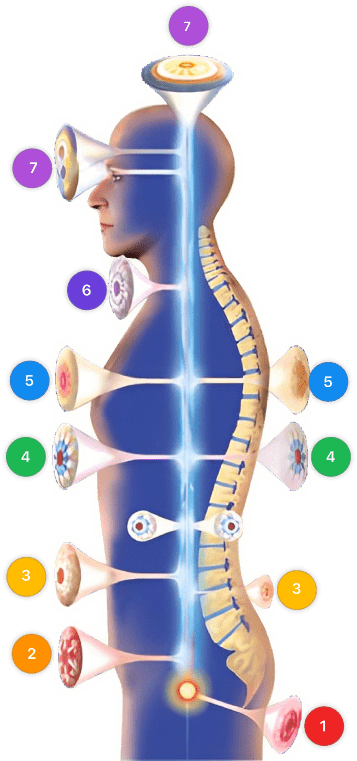 |
|
Use the Mirari Cold Plasma device to treat Psychological symptom/complt other effectively.
WARNING: MIRARI COLD PLASMA IS DESIGNED FOR THE HUMAN BODY WITHOUT ANY ARTIFICIAL OR THIRD PARTY PRODUCTS. USE OF OTHER PRODUCTS IN COMBINATION WITH MIRARI COLD PLASMA MAY CAUSE UNPREDICTABLE EFFECTS, HARM OR INJURY. PLEASE CONSULT A MEDICAL PROFESSIONAL BEFORE COMBINING ANY OTHER PRODUCTS WITH USE OF MIRARI.
Step 1: Cleanse the Skin
- Start by cleaning the affected area of the skin with a gentle cleanser or mild soap and water. Gently pat the area dry with a clean towel.
Step 2: Prepare the Mirari Cold Plasma device
- Ensure that the Mirari Cold Plasma device is fully charged or has fresh batteries as per the manufacturer’s instructions. Make sure the device is clean and in good working condition.
- Switch on the Mirari device using the power button or by following the specific instructions provided with the device.
- Some Mirari devices may have adjustable settings for intensity or treatment duration. Follow the manufacturer’s instructions to select the appropriate settings based on your needs and the recommended guidelines.
Step 3: Apply the Device
- Place the Mirari device in direct contact with the affected area of the skin. Gently glide or hold the device over the skin surface, ensuring even coverage of the area experiencing.
- Slowly move the Mirari device in a circular motion or follow a specific pattern as indicated in the user manual. This helps ensure thorough treatment coverage.
Step 4: Monitor and Assess:
- Keep track of your progress and evaluate the effectiveness of the Mirari device in managing your Psychological symptom/complt other. If you have any concerns or notice any adverse reactions, consult with your health care professional.
Note
This guide is for informational purposes only and should not replace the advice of a medical professional. Always consult with your healthcare provider or a qualified medical professional for personal advice, diagnosis, or treatment. Do not solely rely on the information presented here for decisions about your health. Use of this information is at your own risk. The authors of this guide, nor any associated entities or platforms, are not responsible for any potential adverse effects or outcomes based on the content.
Mirari Cold Plasma System Disclaimer
- Purpose: The Mirari Cold Plasma System is a Class 2 medical device designed for use by trained healthcare professionals. It is registered for use in Thailand and Vietnam. It is not intended for use outside of these locations.
- Informational Use: The content and information provided with the device are for educational and informational purposes only. They are not a substitute for professional medical advice or care.
- Variable Outcomes: While the device is approved for specific uses, individual outcomes can differ. We do not assert or guarantee specific medical outcomes.
- Consultation: Prior to utilizing the device or making decisions based on its content, it is essential to consult with a Certified Mirari Tele-Therapist and your medical healthcare provider regarding specific protocols.
- Liability: By using this device, users are acknowledging and accepting all potential risks. Neither the manufacturer nor the distributor will be held accountable for any adverse reactions, injuries, or damages stemming from its use.
- Geographical Availability: This device has received approval for designated purposes by the Thai and Vietnam FDA. As of now, outside of Thailand and Vietnam, the Mirari Cold Plasma System is not available for purchase or use.
References
- Kerekes N, Zouini B, Tingberg S, Erlandsson S. Psychological Distress, Somatic Complaints, and Their Relation to Negative Psychosocial Factors in a Sample of Swedish High School Students. Front Public Health. 2021;9:669958. doi:10.3389/fpubh.2021.669958
- Peleg O, Deutch C, Dan O. Test anxiety among female college students and its relation to perceived parental academic expectations and differentiation of self. Learn Individ Diff. 2016;49:428-436. doi:10.1016/j.lindif.2016.06.010
- American Psychiatric Association. Diagnostic and Statistical Manual of Mental Disorders. 5th ed. American Psychiatric Association; 2013. doi:10.1176/appi.books.9780890425596
- World Health Organization. The ICD-10 Classification of Mental and Behavioural Disorders: Clinical Descriptions and Diagnostic Guidelines. World Health Organization; 1992.
- Vieta E, Berk M, Schulze TG, et al. Bipolar disorders. Nat Rev Dis Primers. 2018;4:18008. doi:10.1038/nrdp.2018.8
- Sateia MJ. International classification of sleep disorders-third edition: highlights and modifications. Chest. 2014;146(5):1387-1394. doi:10.1378/chest.14-0970
- Sachdev PS, Blacker D, Blazer DG, et al. Classifying neurocognitive disorders: the DSM-5 approach. Nat Rev Neurol. 2014;10(11):634-642. doi:10.1038/nrneurol.2014.181
- Coccaro EF. Intermittent explosive disorder as a disorder of impulsive aggression for DSM-5. Am J Psychiatry. 2012;169(6):577-588. doi:10.1176/appi.ajp.2012.11081259
- Smoller JW. The genetics of stress-related disorders: PTSD, depression, and anxiety disorders. Neuropsychopharmacology. 2016;41(1):297-319. doi:10.1038/npp.2015.266
- Carr CP, Martins CM, Stingel AM, Lemgruber VB, Juruena MF. The role of early life stress in adult psychiatric disorders: a systematic review according to childhood trauma subtypes. J Nerv Ment Dis. 2013;201(12):1007-1020. doi:10.1097/NMD.0000000000000049
Related articles
Made in USA
